There are so many surprising facts about Valentine’s Day! Would you believe that the first valentine was sent in the 15th century or that chocolates used to be prescribed by doctors? Learn about these Valentine’s Day fun facts and more with this list—perfect for sharing with your students!
Plus, click the button below to receive a free Google Slideshow of all of the facts to share with your classroom (or loved ones!)

43 Fun Facts About Valentine’s Day
The first Valentine’s Day celebration took place in France.
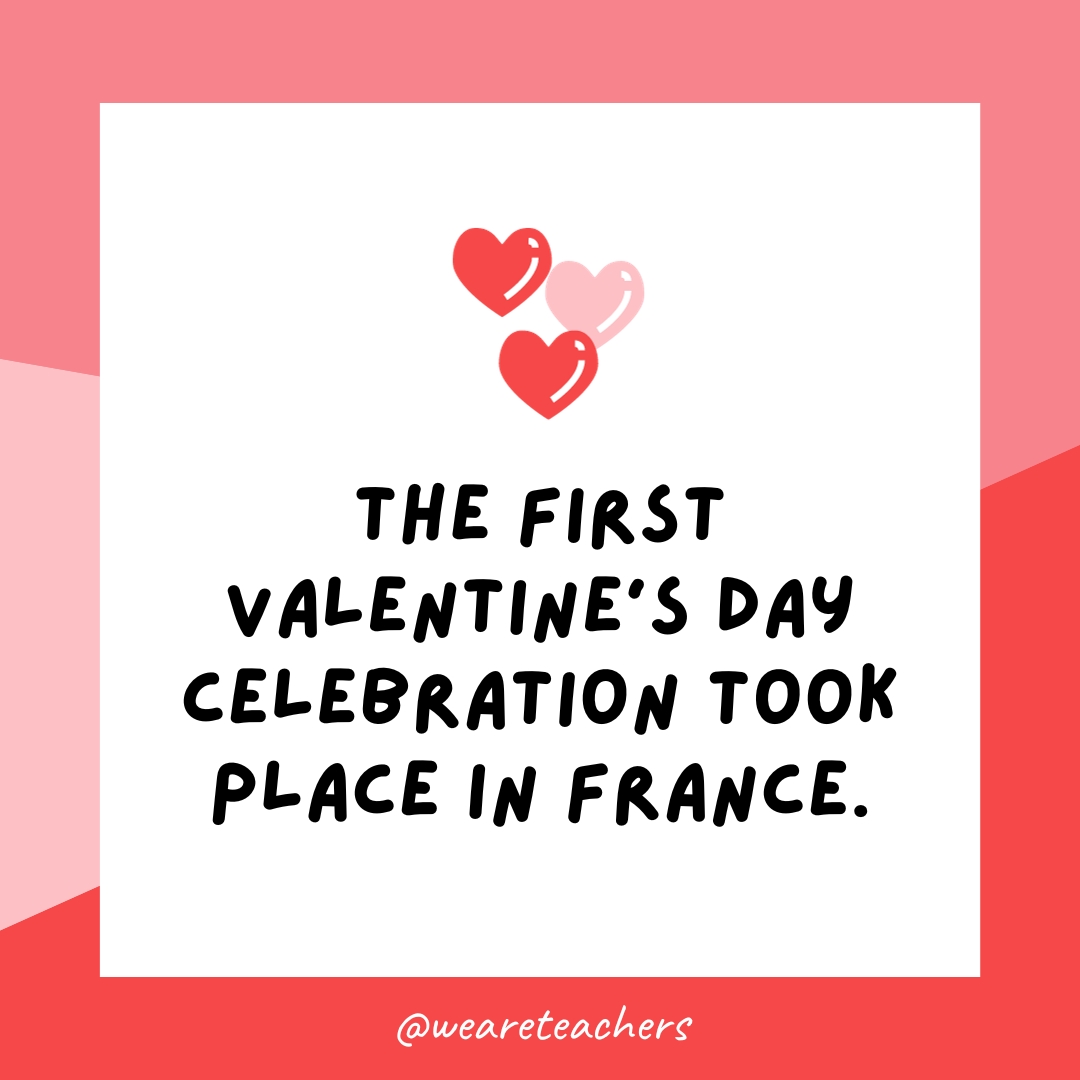
Although the exact first celebration is hard to pin down, the first official Valentine’s Day as a celebration of love likely occurred in Paris in the 1400s. The English and French associated mid-February with birds’ mating season, making it an appropriate time to celebrate romance.
145 million greeting cards are exchanged every year for Valentine’s Day.
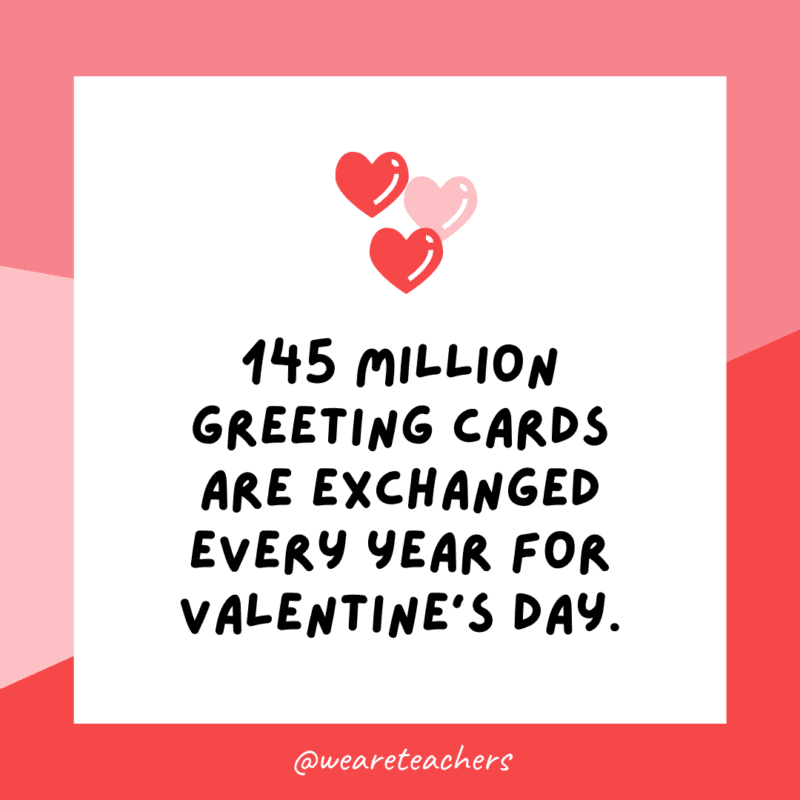
And that’s just in the United States, according to Hallmark! Over 1 billion valentines are sent worldwide, according to this video from Homeschool Pop.
About 25% of pet owners give Valentine’s Day gifts to their pets.
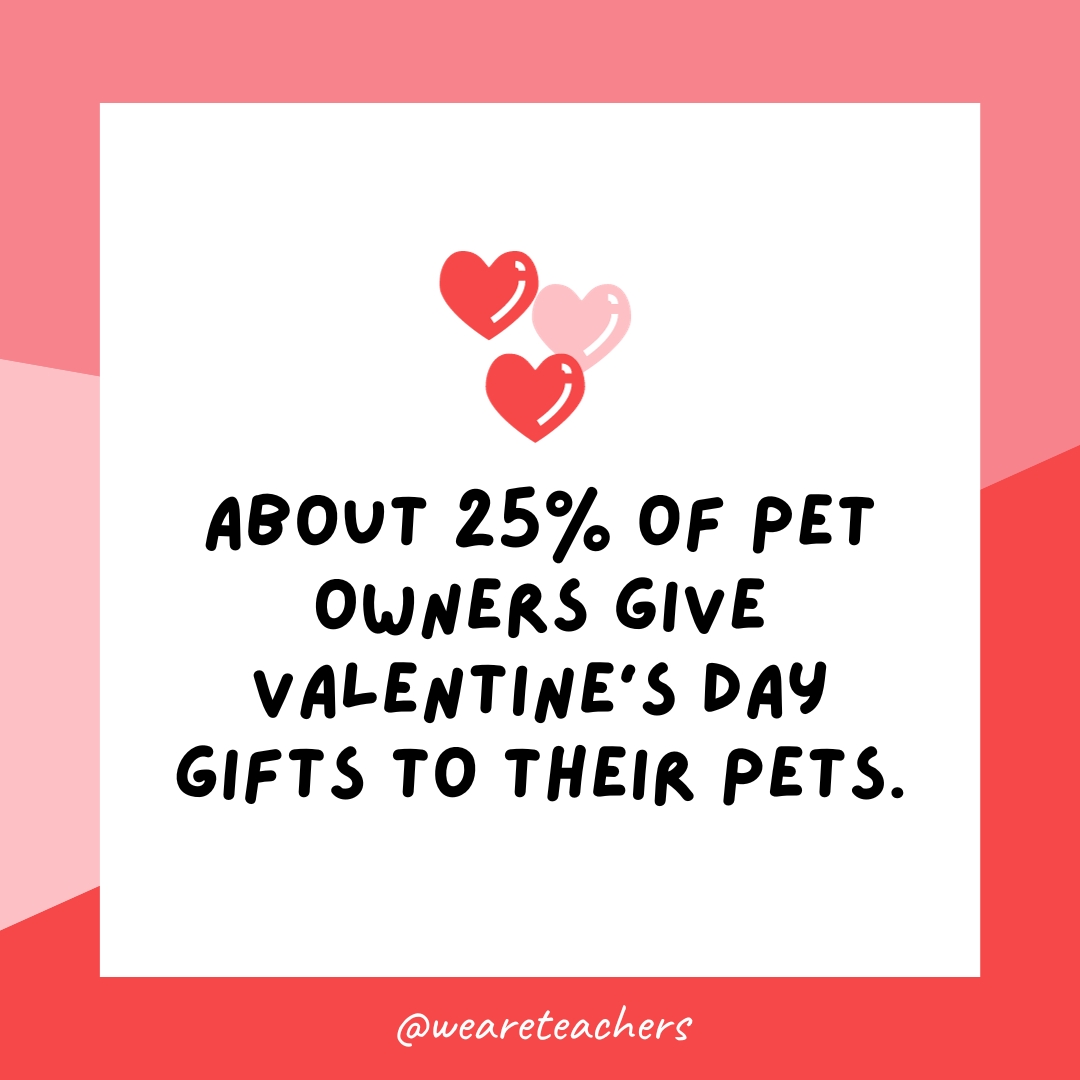
Valentines are not just for humans but for dogs, cats, bunnies, birds, and other pets!
U.S. pet owners spent over $2 billion on valentines for their pets in 2024.
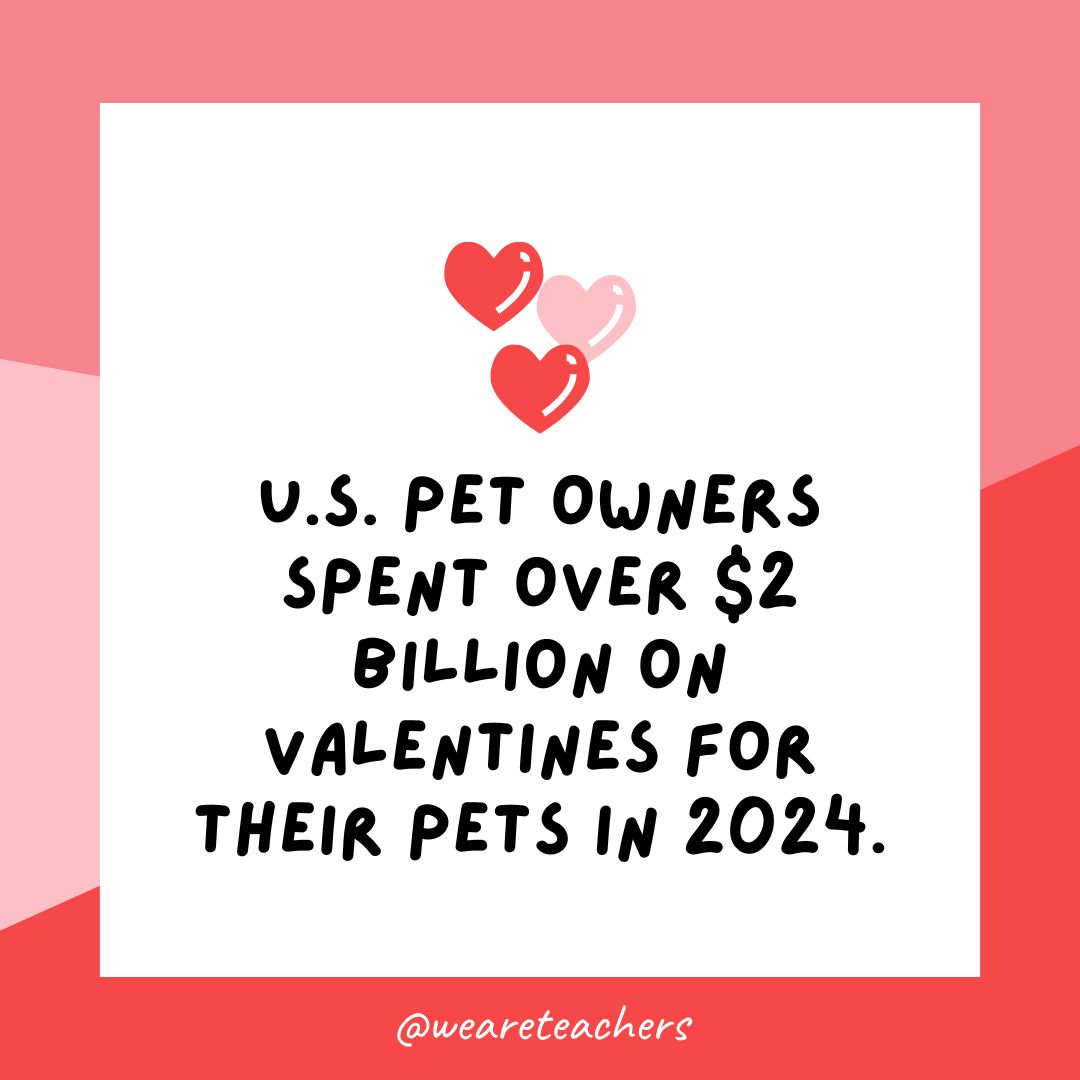
Not only will a quarter of pet owners purchase valentines for their furry friends, Americans collectively spend over $2 billion in the process!
The inventor of candy hearts started out by producing medicinal lozenges.
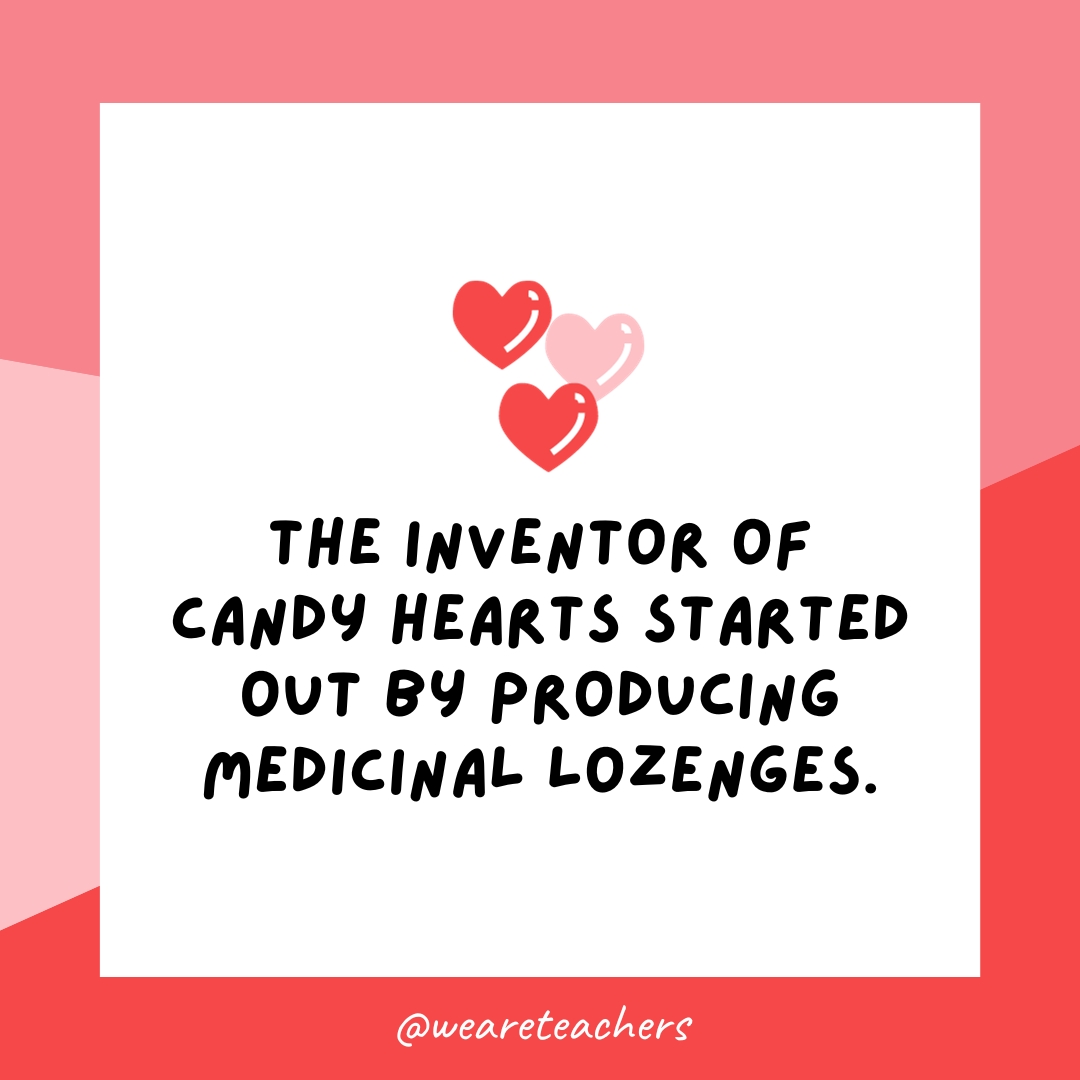
In the 1800s, Boston pharmacist Oliver Chase invented a machine to simplify the process of making lozenges. The machine was later used to make heart-shaped candy with messages printed on them. Learn more about how Sweethearts are made in this video.
8 billion conversation hearts are manufactured each year.
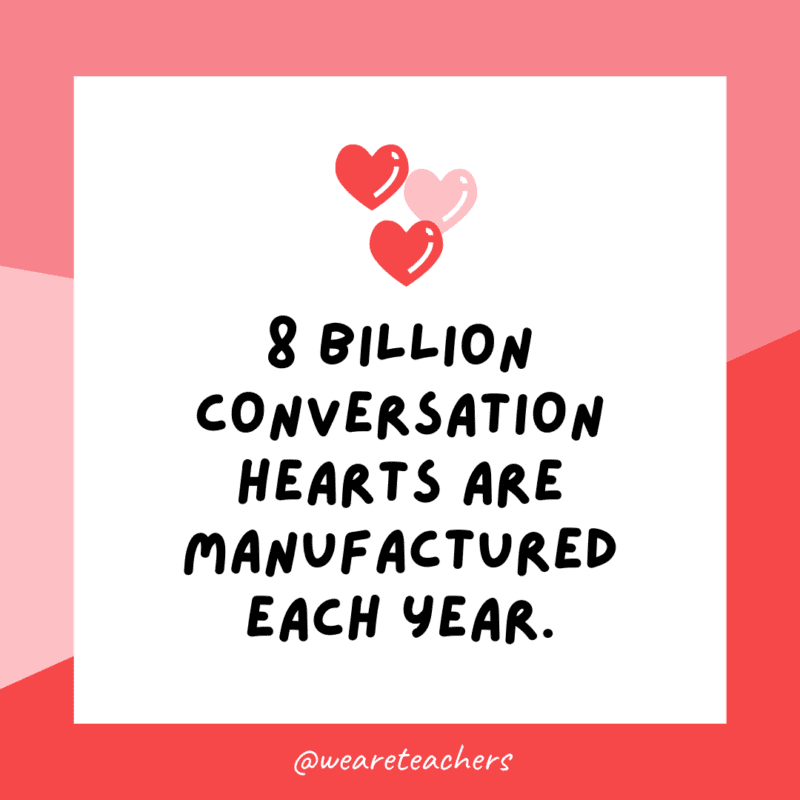
So many conversation hearts! Classic romantic phrases on the candies include “Be Mine,” “Cutie Pie,” and “I’m Yours.” Billions of candy hearts went unproduced in 2019 when the company that made Sweethearts was sold, resulting in a conversation-heart–less Valentine’s Day.
Consumers buy over 58 million pounds of chocolate and candy for Valentine’s Day.
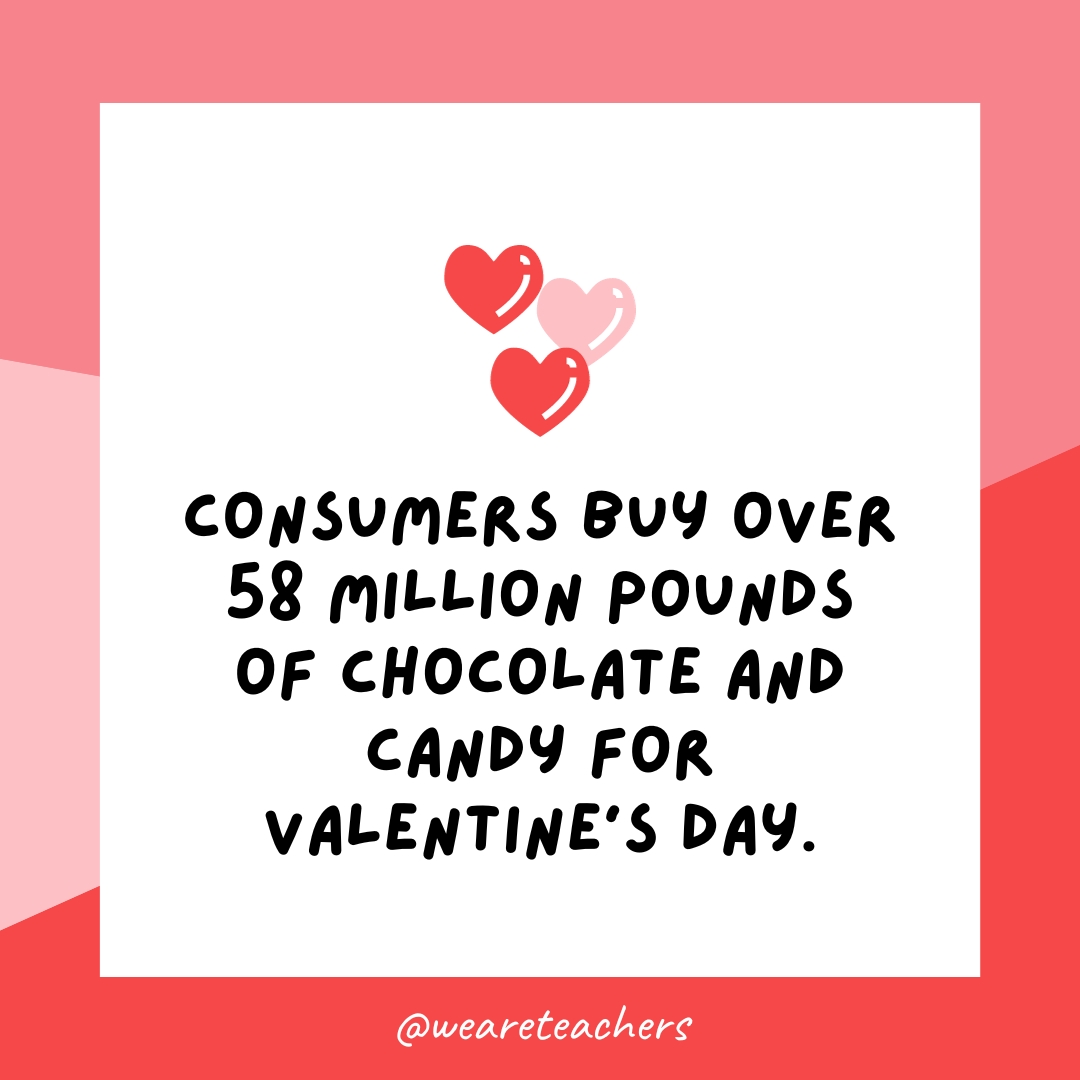
Heart-shaped boxes of chocolate make up about 10% of Valentine’s Day candy sales.
The chocolate box has been around for more than 150 years.
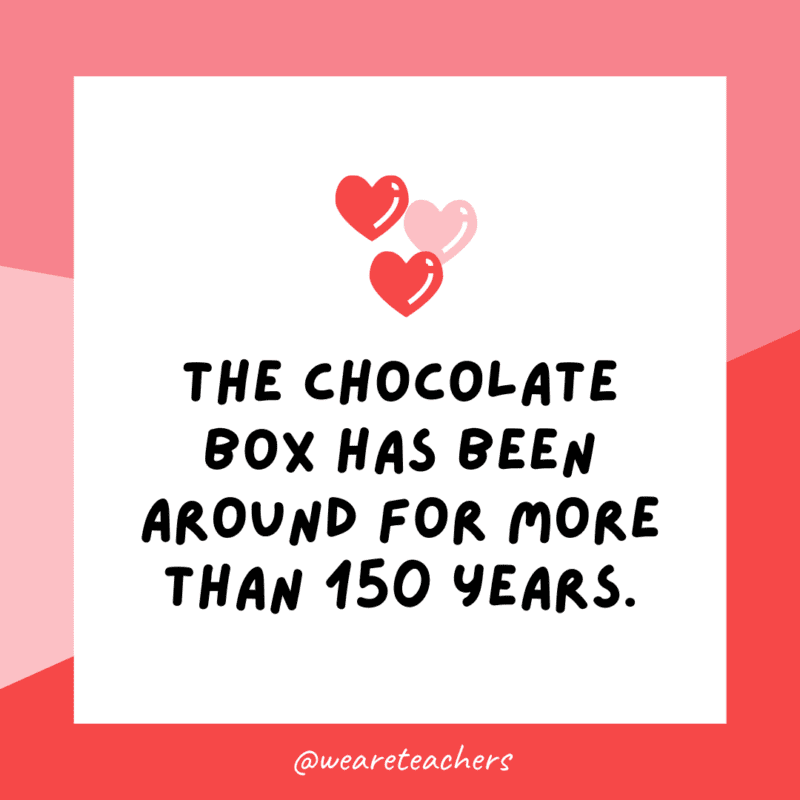
In the mid-1800s, the Cadbury company took advantage of falling import costs and created the first box of chocolates. They subsequently created the first heart-shaped box of chocolates in the 1860s.
Lovebirds are actual birds.
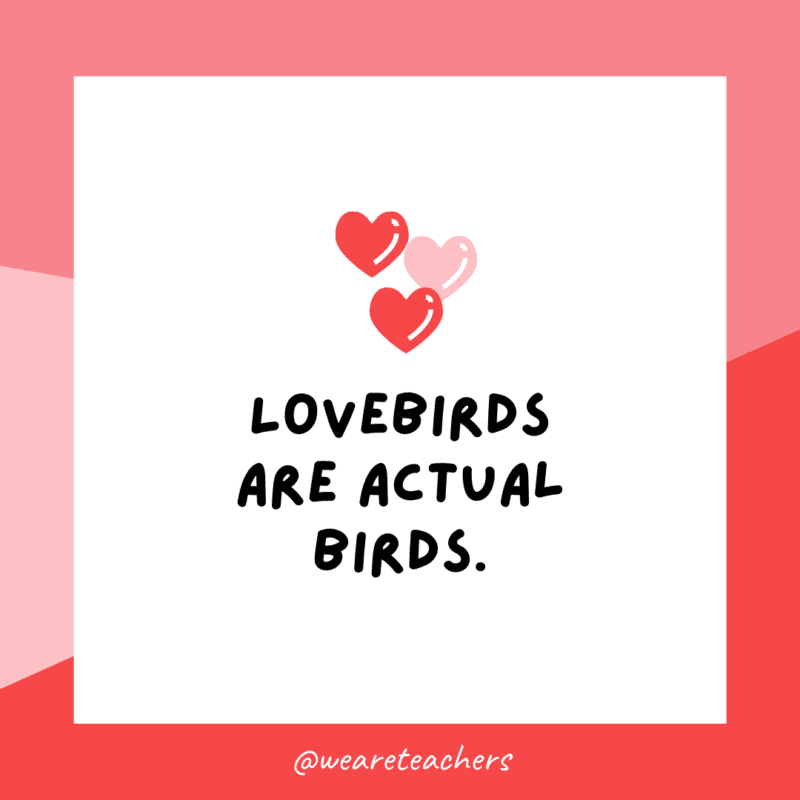
The term “lovebirds” describes a couple in love. It’s also the common name for the Agapornis bird.
The first valentine was sent from prison.

The Duke of Orleans wrote the first valentine in the early 15th century while he was imprisoned. He wrote a poem and sent it to his second wife, but, of course, he never saw her reaction to the poem he sent because he was in prison.
Every year, thousands of people send letters to Juliet (from Romeo and Juliet).

People write letters to Juliet, star-crossed lover from Shakespeare’s Romeo and Juliet, and send them to Verona, Italy. The Juliet Club is a group of volunteers in Verona who respond to the letters.
Many countries throughout the world celebrate Valentine’s Day.
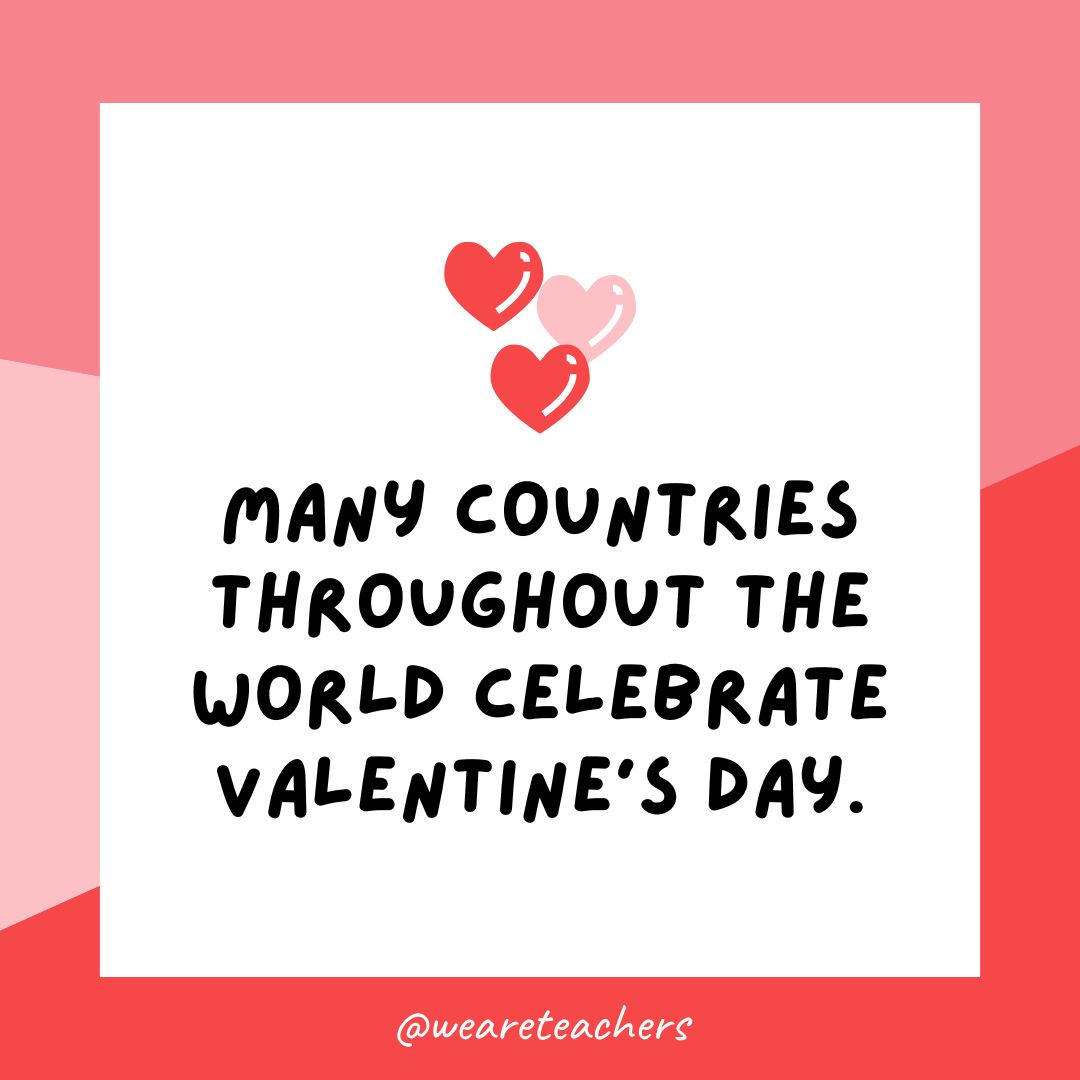
The United States, Britain, Canada, Australia, Argentina, France, Mexico, South Korea, and the Philippines all celebrate the day of love.
Teachers get more valentines than anyone else.

We appreciate teachers too so this is one Valentine’s Day fact that comes as no surprise to us! Teachers receive more valentines than even children, wives, and moms!
250 million roses are grown just for Valentine’s Day.
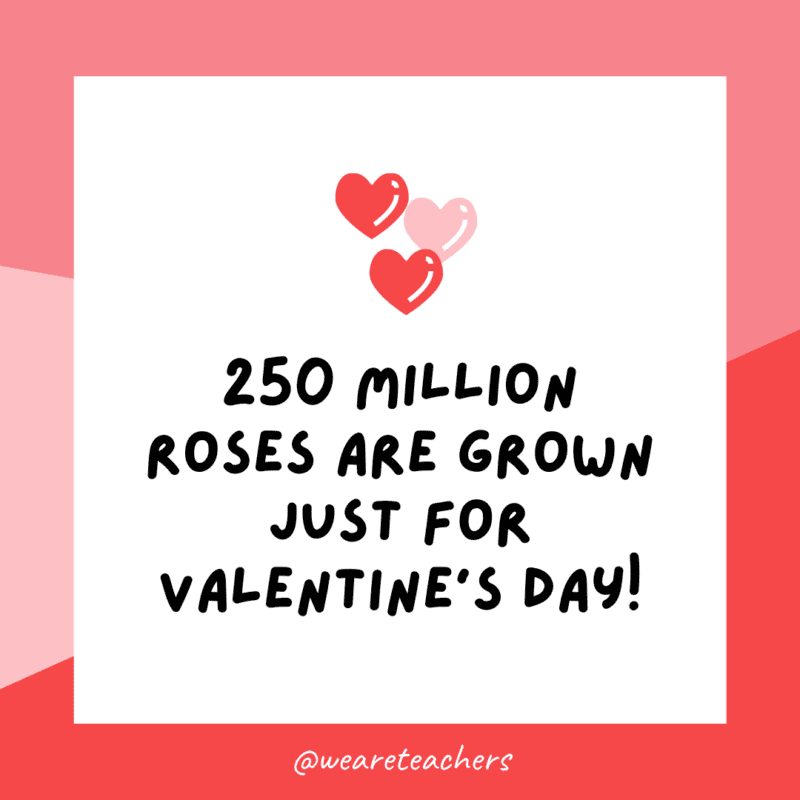
Venus, Roman goddess of love, loved red roses, and red roses symbolize romance and love.
Doctors once prescribed chocolate to fix a broken heart.

This may be one of the most surprising Valentine’s Day facts: Physicians in the old days would recommend chocolate to people who were suffering from a broken heart or pining after a lost love.
Most Americans will buy gifts, cards, or treats for Valentine’s Day.
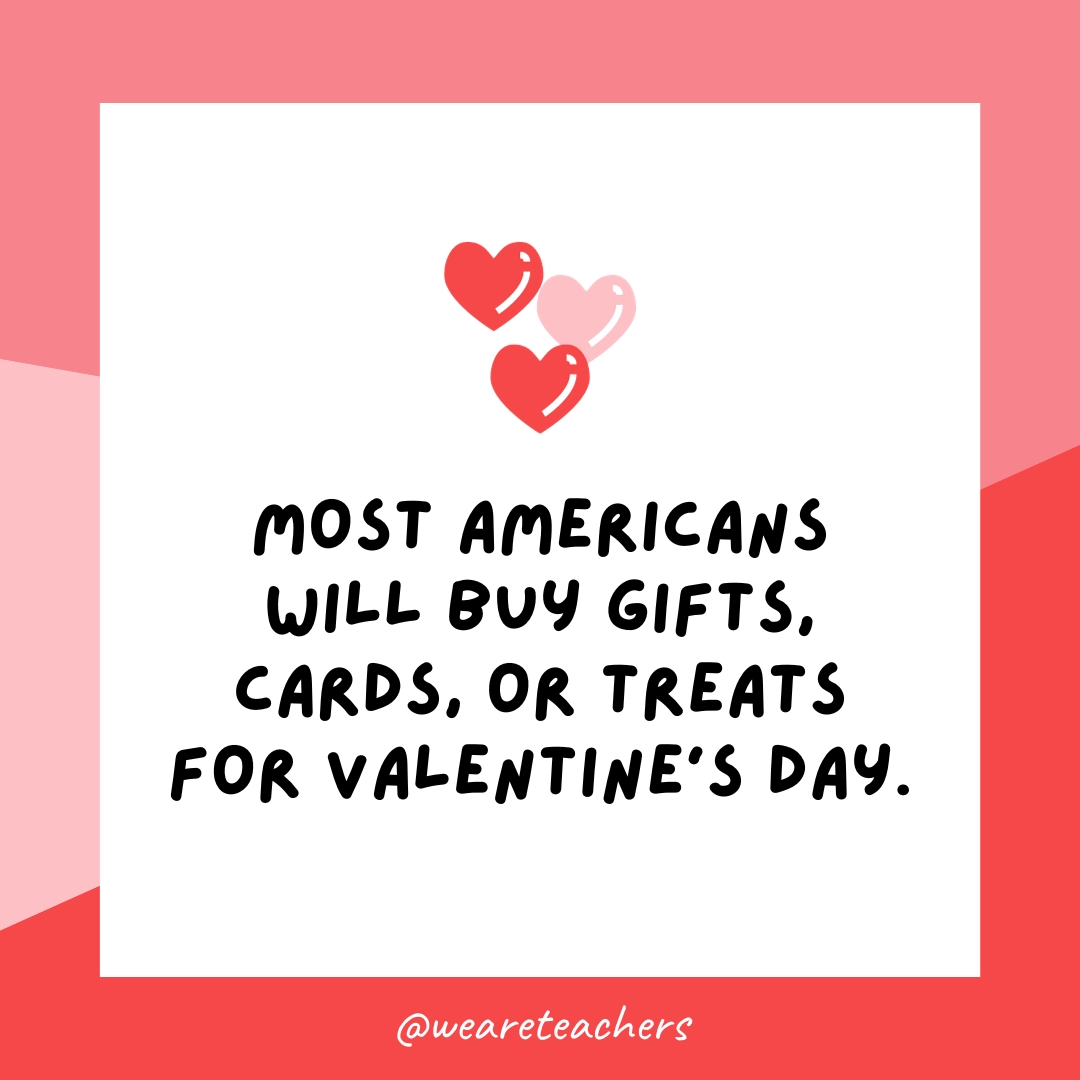
About 80% of consumers in the United States plan to shop for Valentine’s Day, making Americans unmatched in the realm of Valentine’s Day shopping. Sweet!
Hallmark prints more than 500 Valentine’s Day card designs.
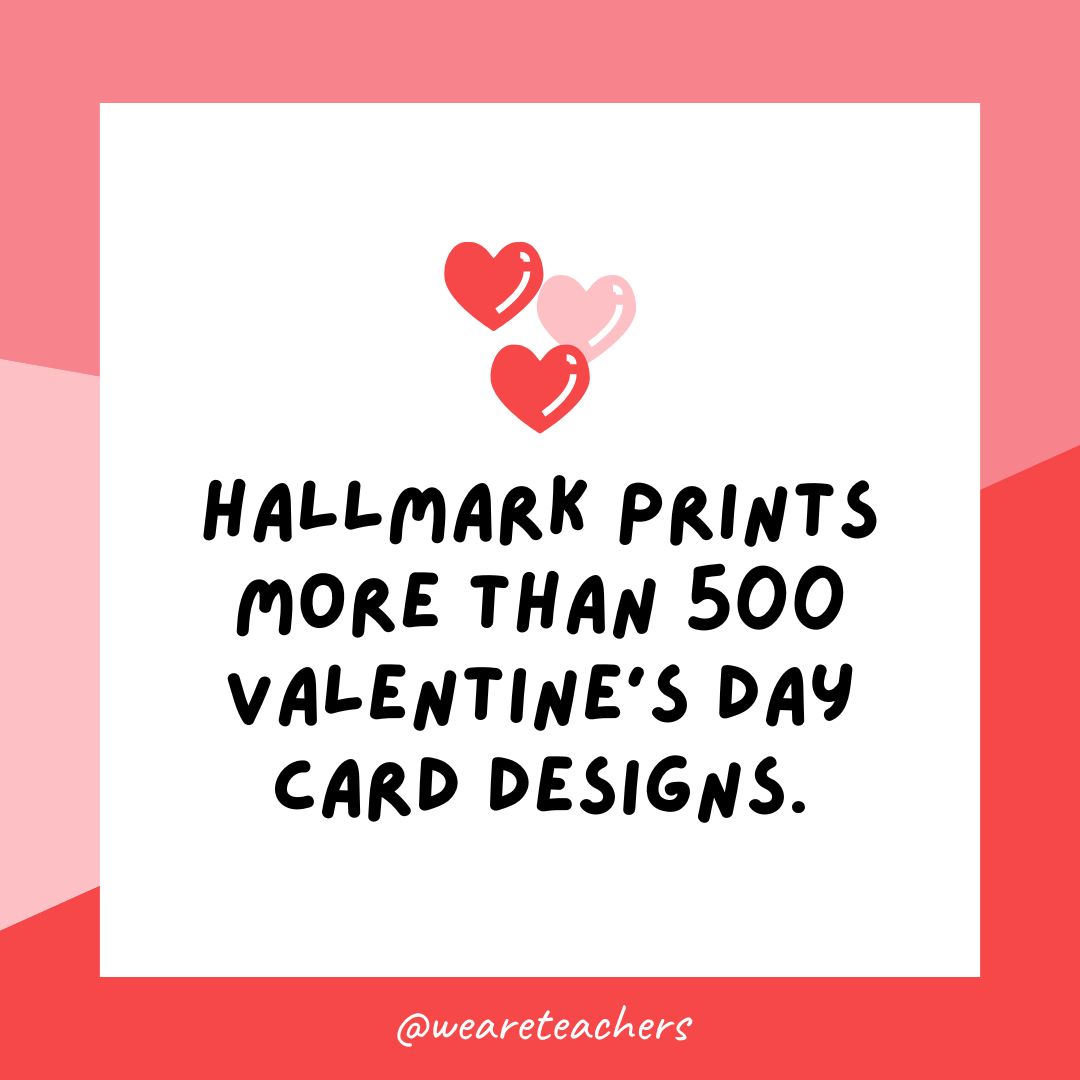
Hallmark makes more than 500 Valentine’s card options, so there’s literally something for everyone.
Valentine’s Day is one of the biggest holidays for giving flowers.
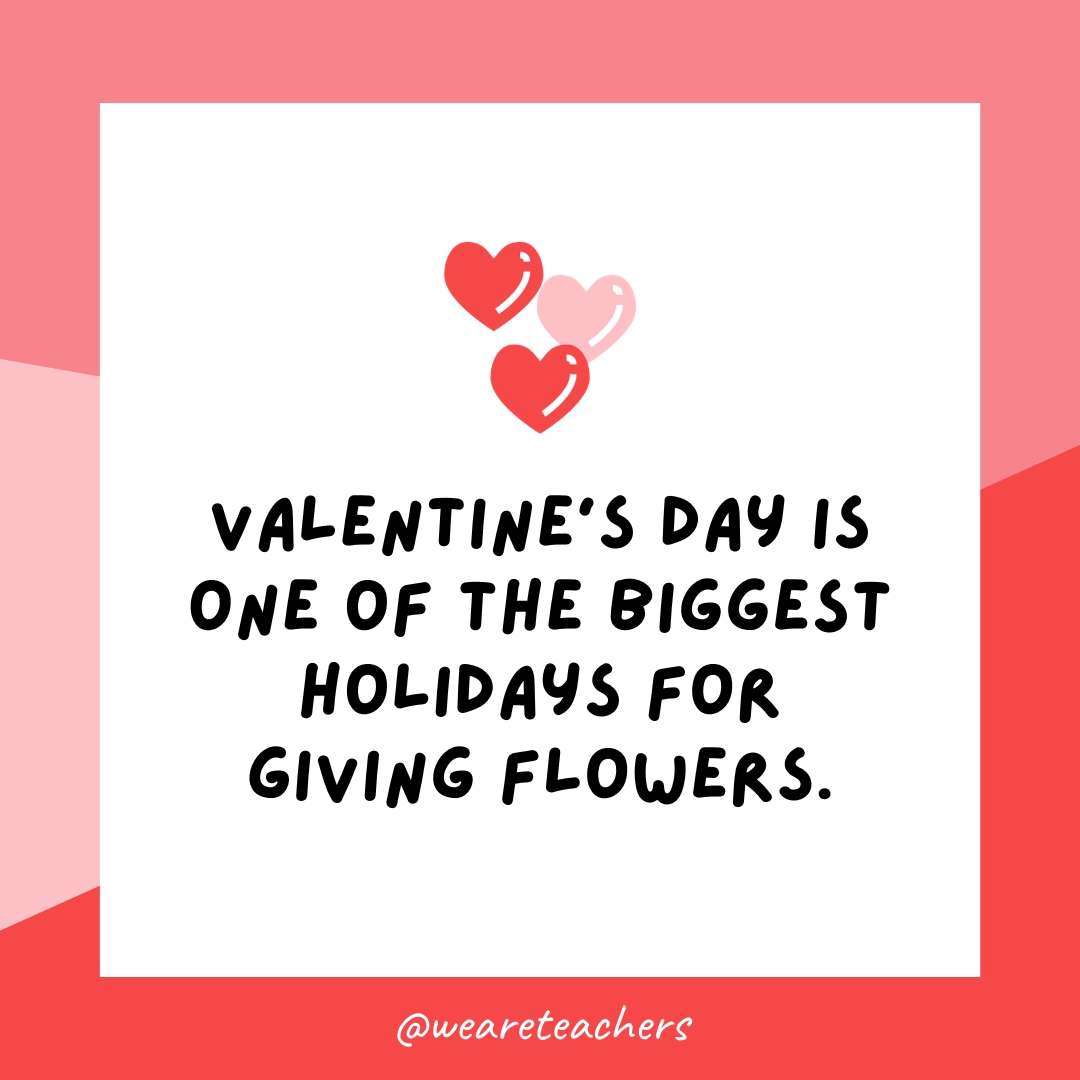
If you’re giving flowers this Valentine’s Day, you’re in good company. The other top flower-giving holiday is Mother’s Day.
People in the Victorian era used valentines to discourage suitors.

During the Victorian era, people who did not want attention would send “vinegar valentines” or “penny dreadfuls.” They were intended as an insult to unwanted admirers.
Men spend more than women on Valentine’s Day.
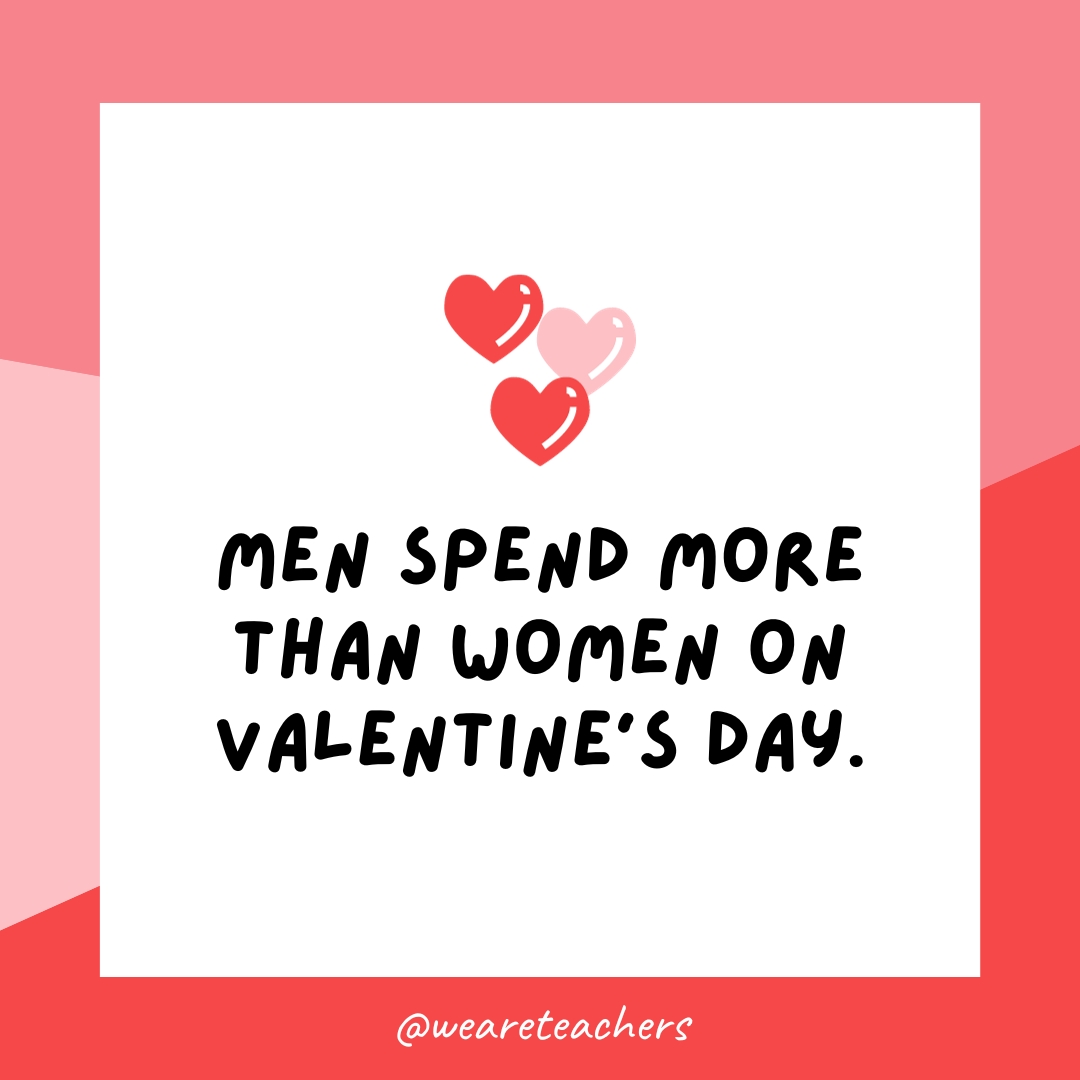
In fact, men spend about 25% more money than women do on Valentine’s Day.
Esther Howland sold the first mass-produced valentines in the 19th century.

In the 1840s, Esther Howland of Massachusetts sold the first mass-produced Valentine’s Day cards. Howland’s father owned a stationery store, and she took advantage of the opportunity to sell fancy greeting cards.
Historians credit the English poet Geoffrey Chaucer with connecting romance to Valentine’s Day.

Chaucer, who also authored The Canterbury Tales, wrote about Valentine’s Day in The Parliament of Foules.
Hallmark was the first greeting card company to go national.
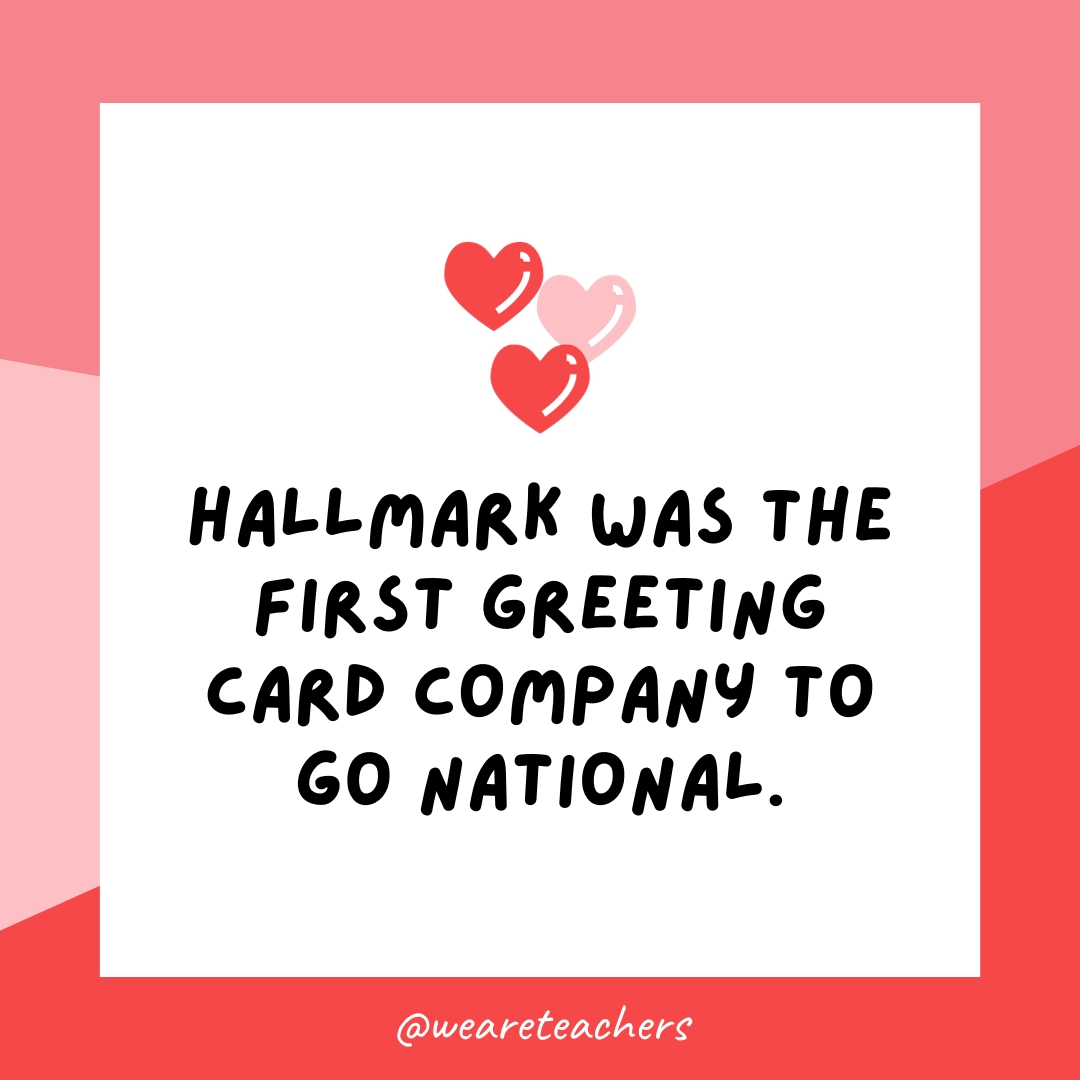
Hallmark founder Joyce Clyde Hall was the first to advertise greeting cards nationally. He ran an ad in Ladies’ Home Journal and also sponsored radio ads.
There are many movies about Valentine’s Day.

Several movies are either set on or around Valentine’s Day or have the holiday in their title. Surprisingly, many of these films are horror movies!
First lady Jacqueline Kennedy gave a televised tour of the White House on Valentine’s Day.
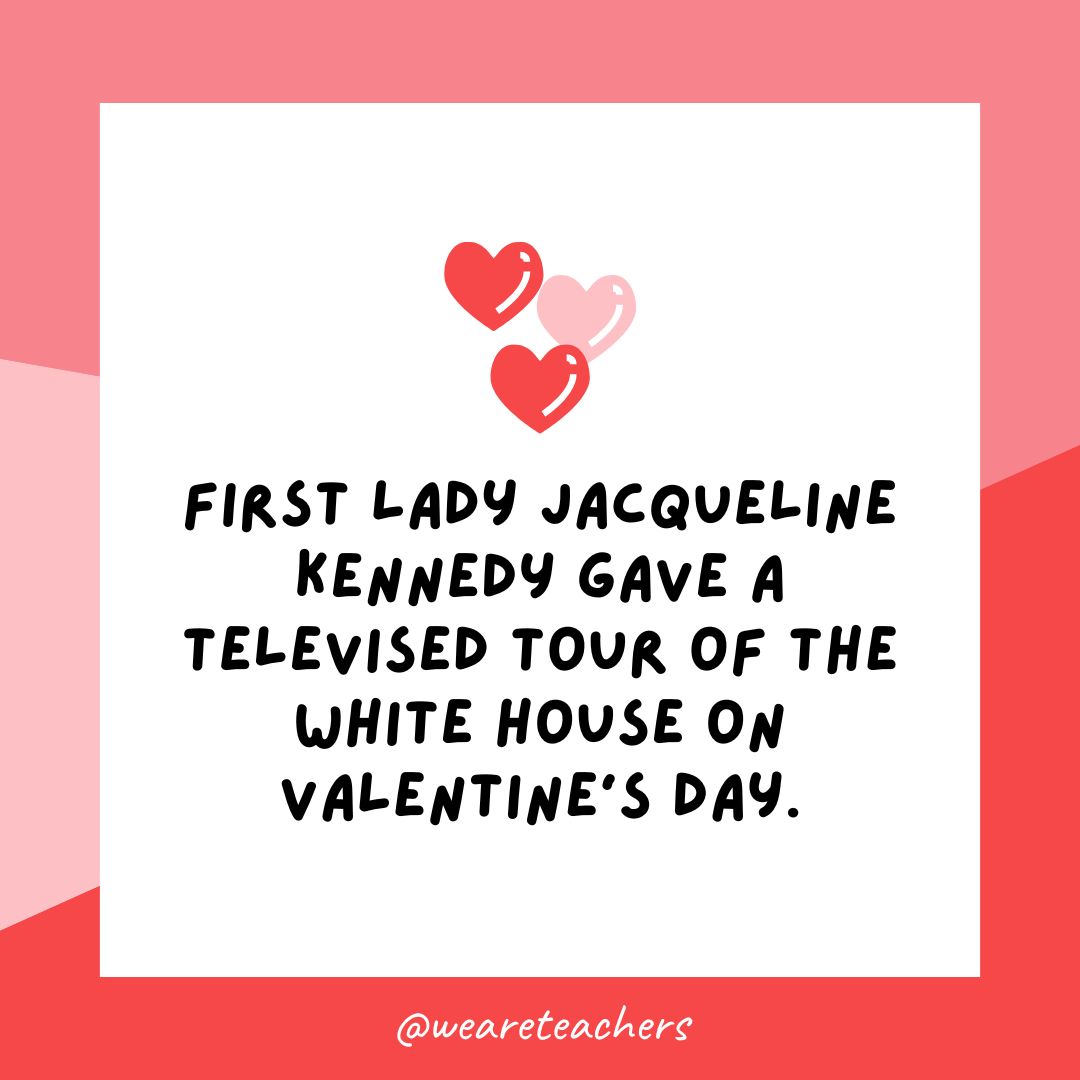
On Valentine’s Day 1962, CBS aired a special tour of the renovated public rooms in the White House hosted by popular first lady Jackie Kennedy. Fifty-six million viewers watched from home!
California is the state with the most chocolatiers.
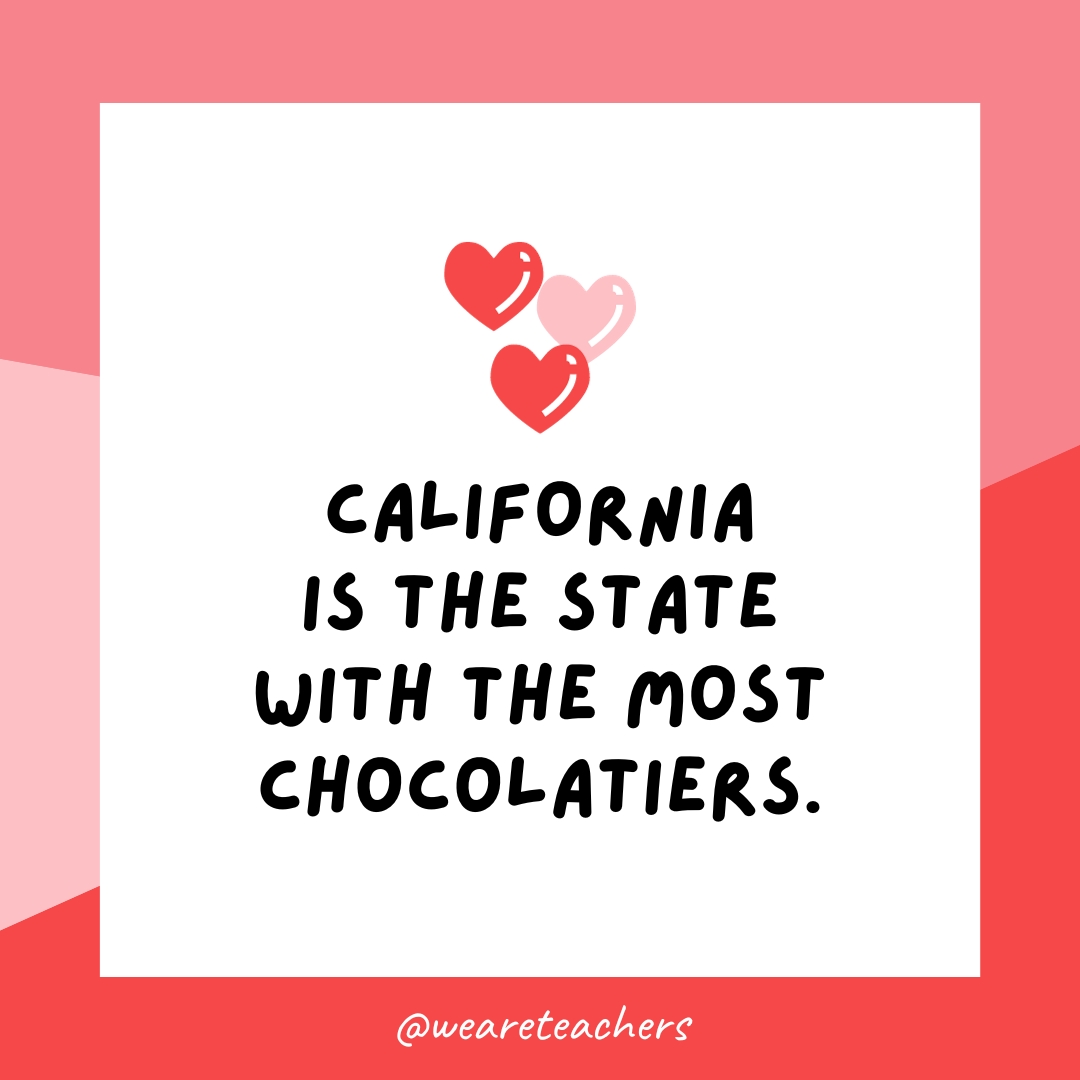
The state has 128 chocolate makers, followed by Pennsylvania with 113.
The League of Women Voters was officially formed on February 14, 1920.
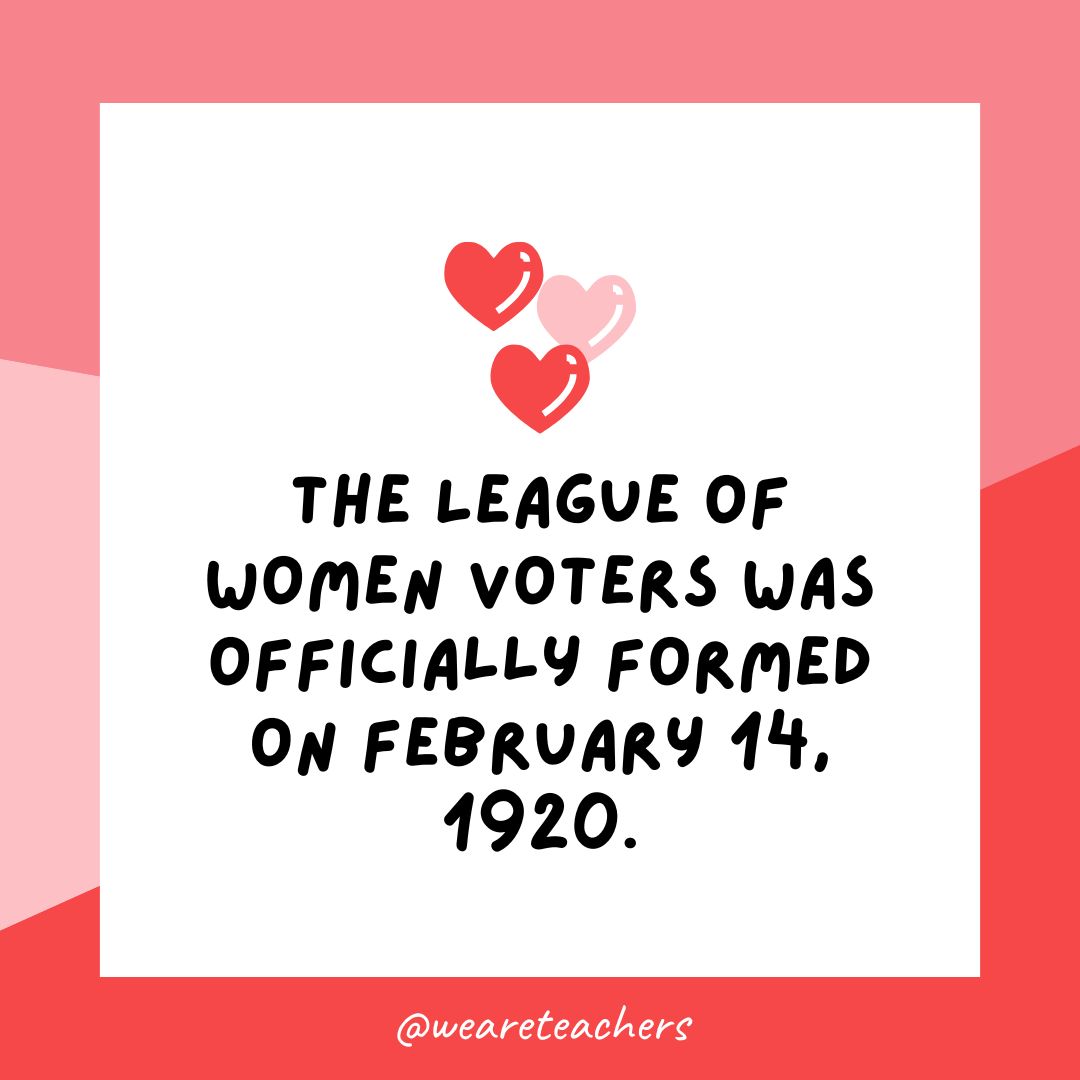
The League was formed in Chicago just six months prior to when the 19th Amendment to the U.S. Constitution granted women the right to vote.
There was more than one Saint Valentine.
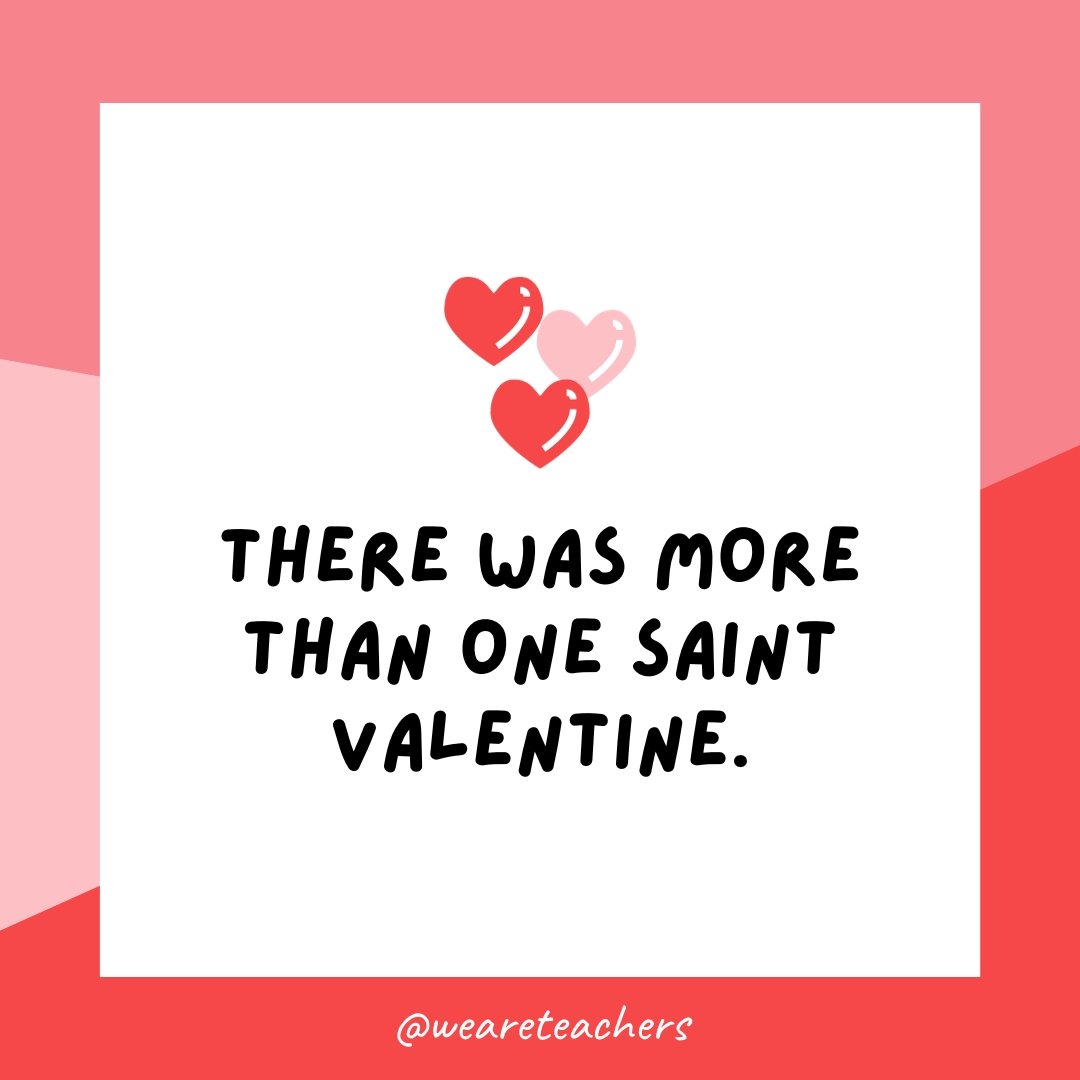
The Catholic Church recognizes three different Saint Valentines (or Valentinus). Each of the Saint Valentines was martyred and could have inspired the holiday.
Pope Gelasius banned the celebration of Lupercalia.

In the 5th century, Pope Gelasius forbade the celebration of Lupercalia. Some say he replaced it with “St. Valentine’s Day,” though no one knows the exact origins of the holiday for certain.
Each flower’s color has meaning.
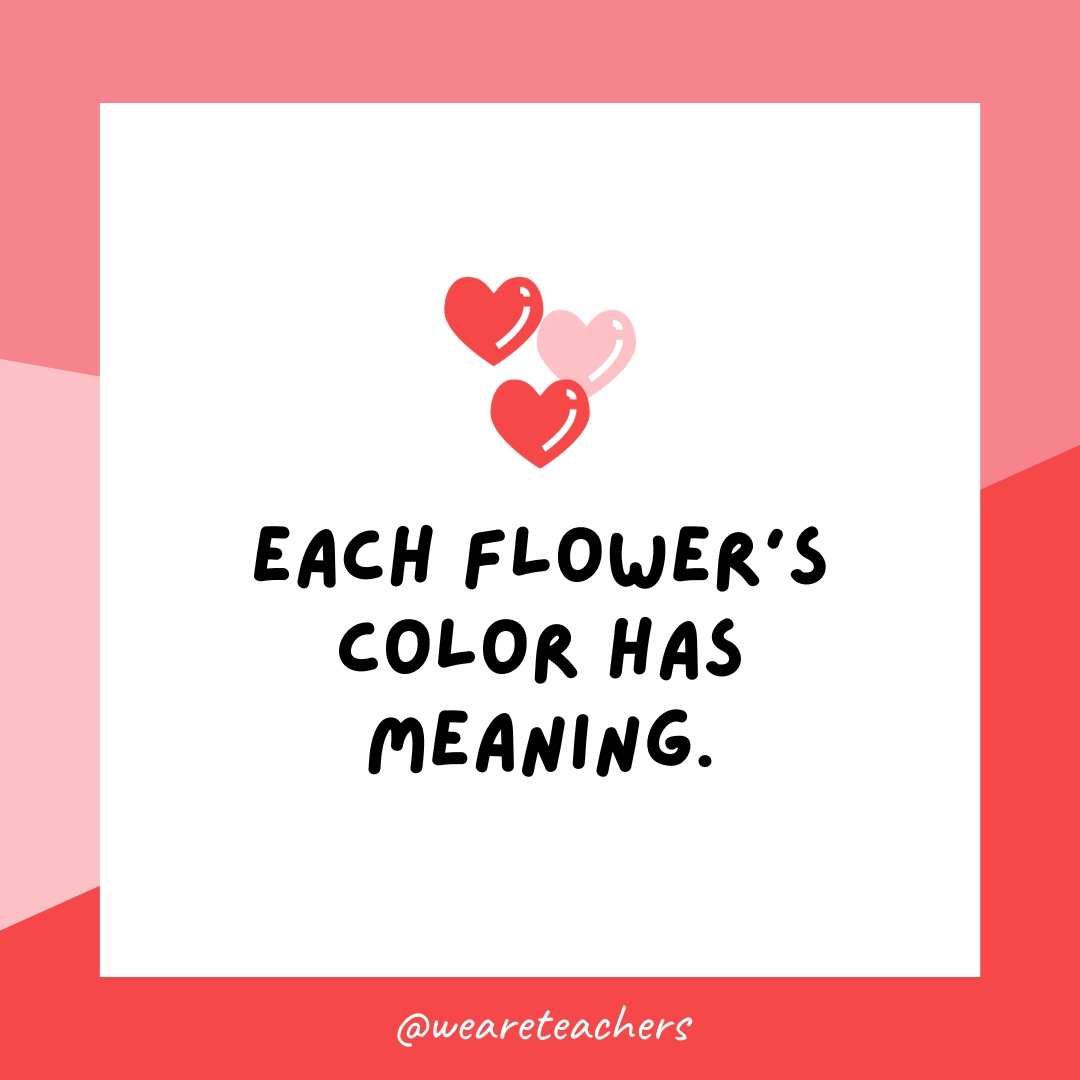
Red roses symbolize love, but other flower colors have meaning too. Deep pink symbolizes happiness, purple = royalty, and white = sincerity.
The first name Valentine was most popular in 1922.

The Official Social Security website has tracked the top 1,000 baby names every year since the early 1900s. The first name Valentine, which is more popular for boys, hasn’t cracked the top 1,000 since 1955. The name hit its peak popularity in 1922, with 132 babies named Valentine that year.
Many famous singers, including Frank Sinatra, have covered the show tune “My Funny Valentine.”
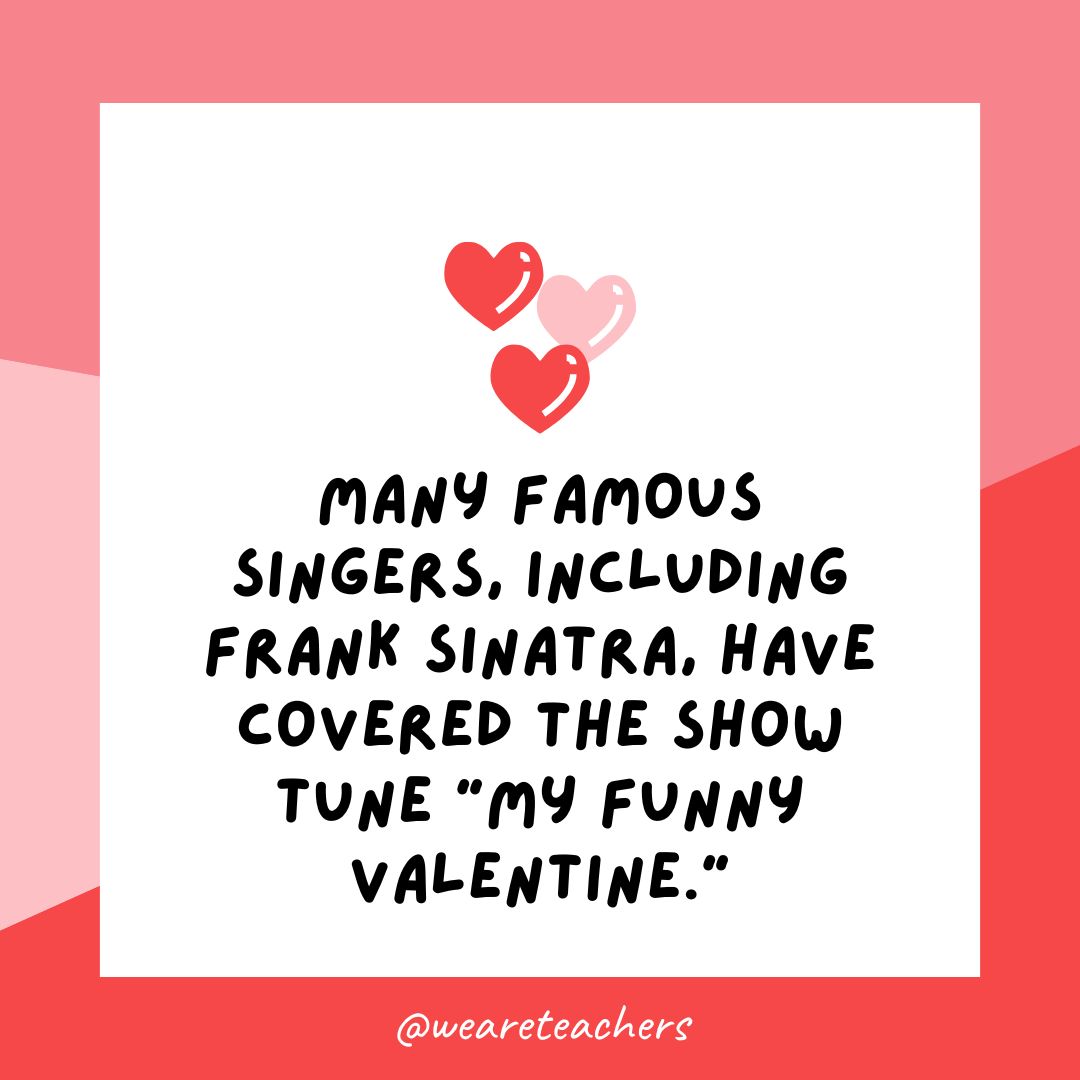
This famous song is from the 1937 musical Babes in Arms. Elvis Costello, Miles Davis, Ella Fitzgerald, and many others have all covered it.
Four U.S. states have cities named Valentine.
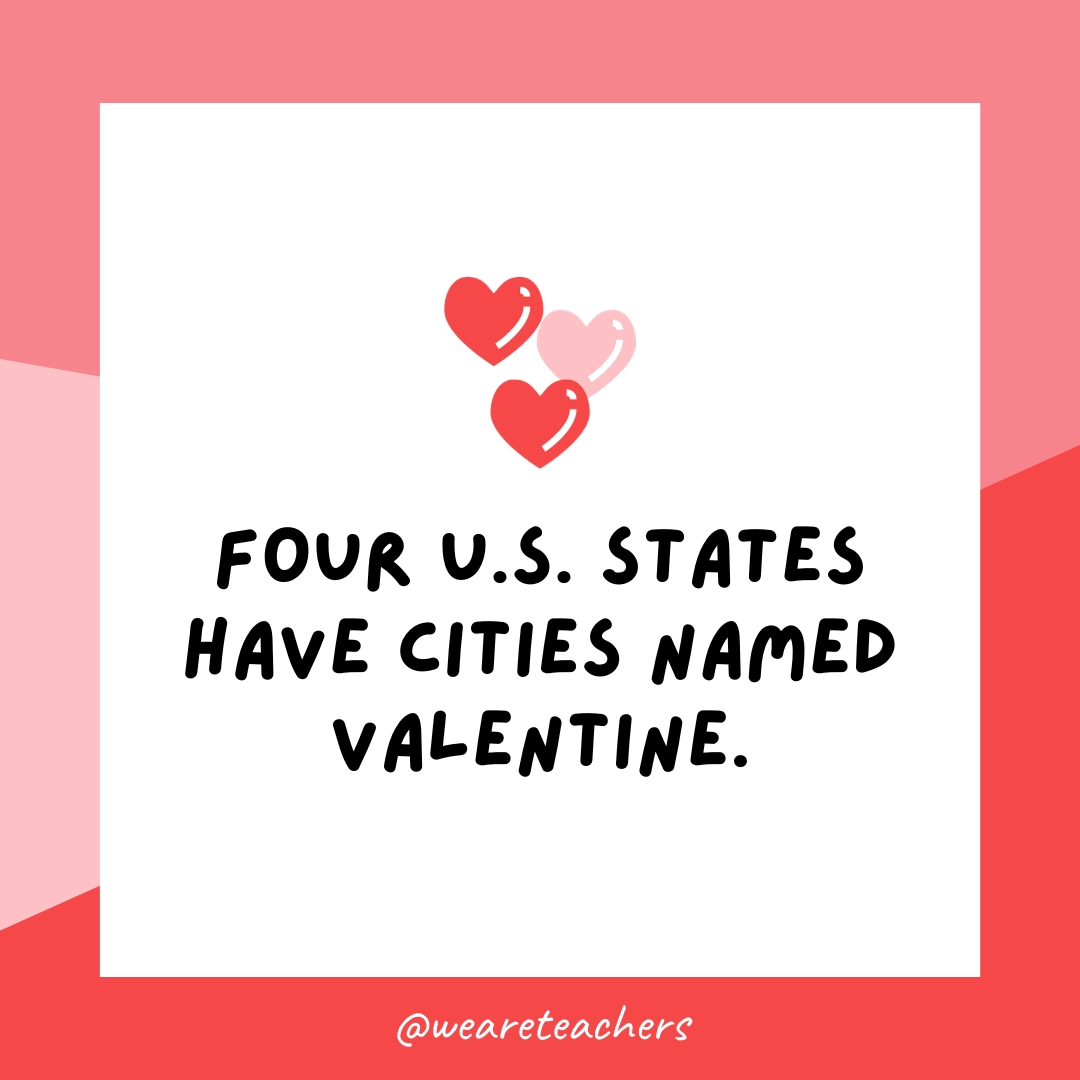
You can live in a town named Valentine in Arizona, Nebraska, Texas, or Virginia (it’s actually “Valentines” in VA).
Mass weddings are a Valentine’s Day tradition in the Philippines.
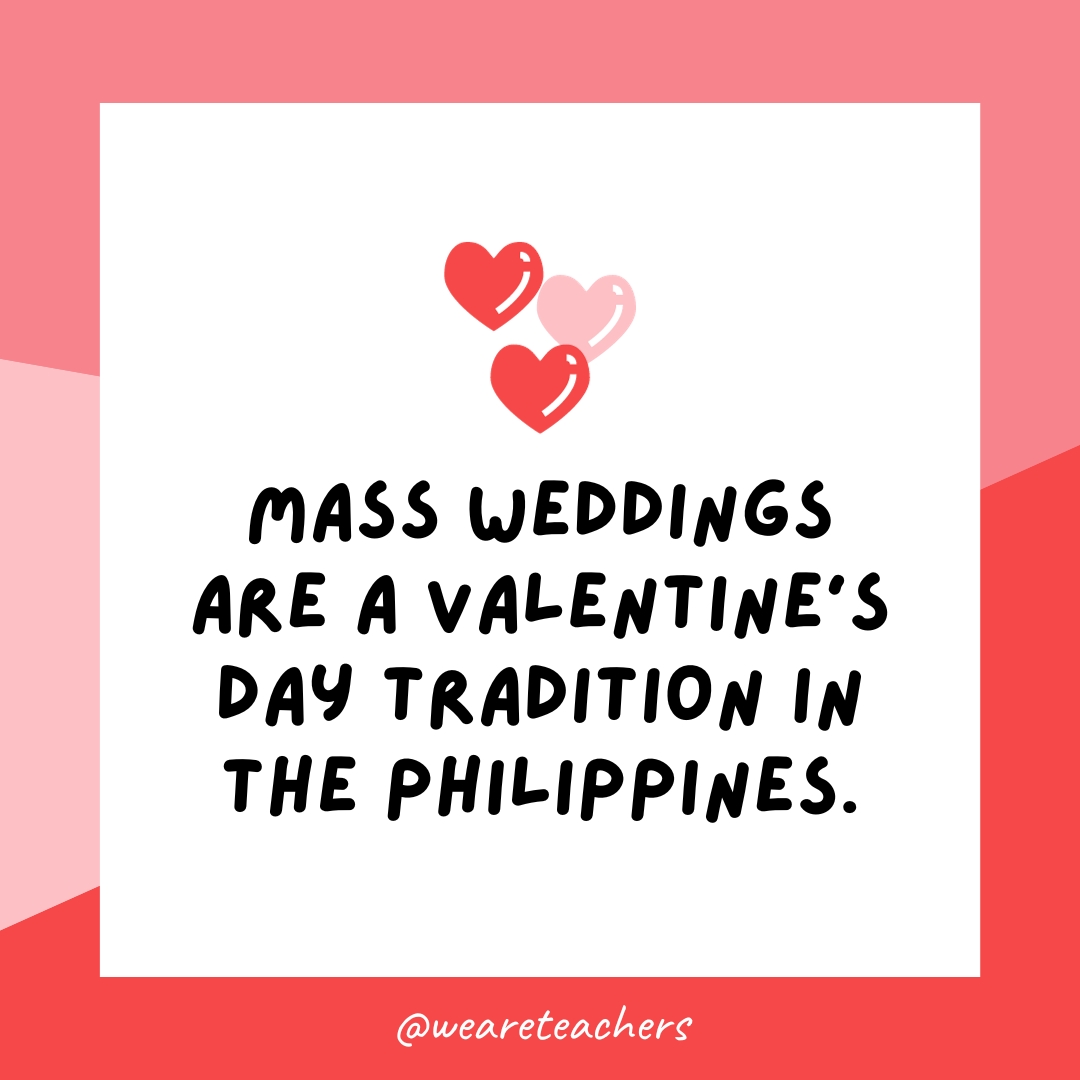
The government funds the mass weddings so they are free for the couples, aside from registering to get married.
In Japan, women give men chocolate for Valentine’s Day.
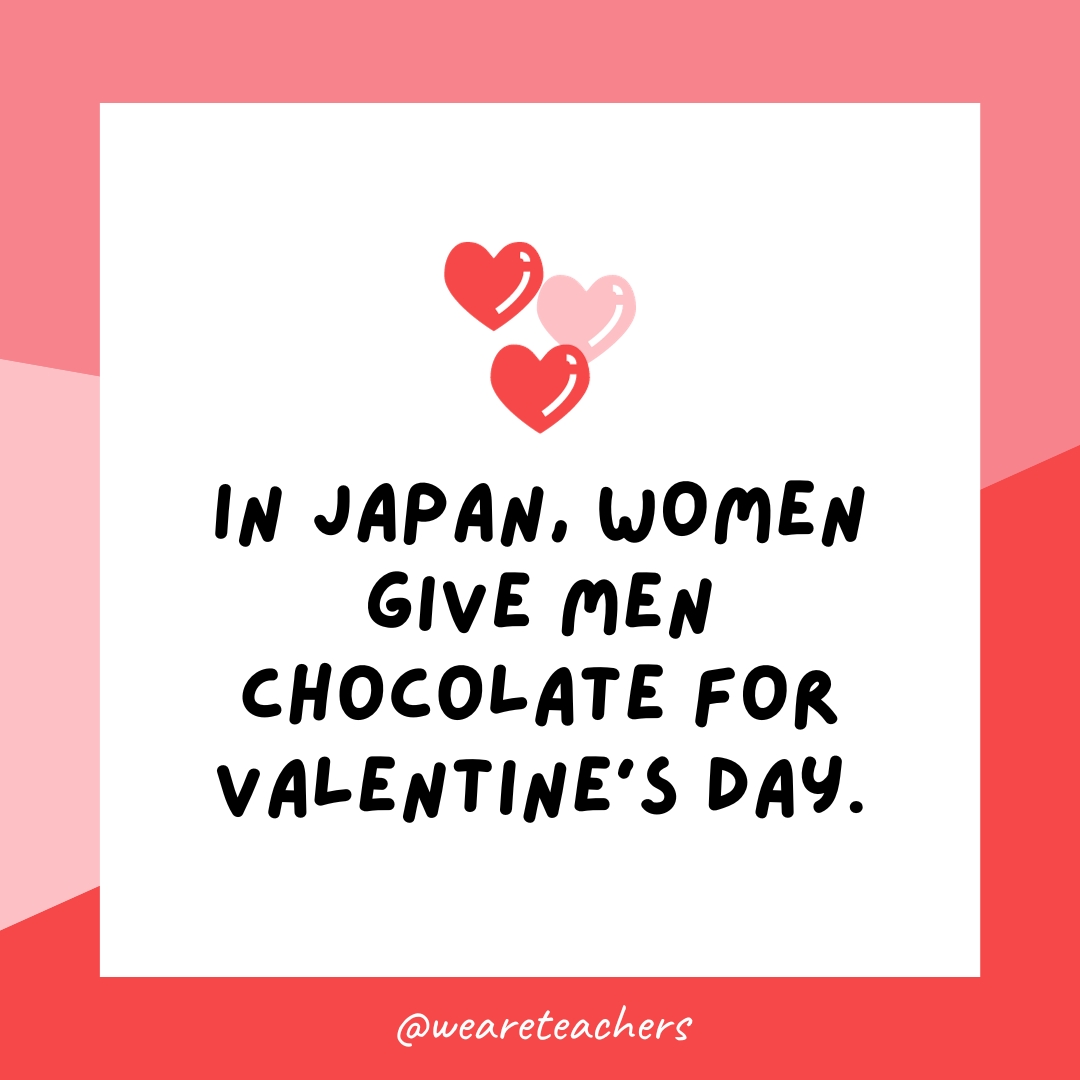
Women give men chocolates in Japan, although they have pushed back against this tradition, arguing that it’s too obligatory.
Of the 365 possible birthdays, February 14 is the 63rd most common birthday.

Being born on Valentine’s Day is surprisingly common!
Oregon and Arizona both became states on Valentine’s Day.
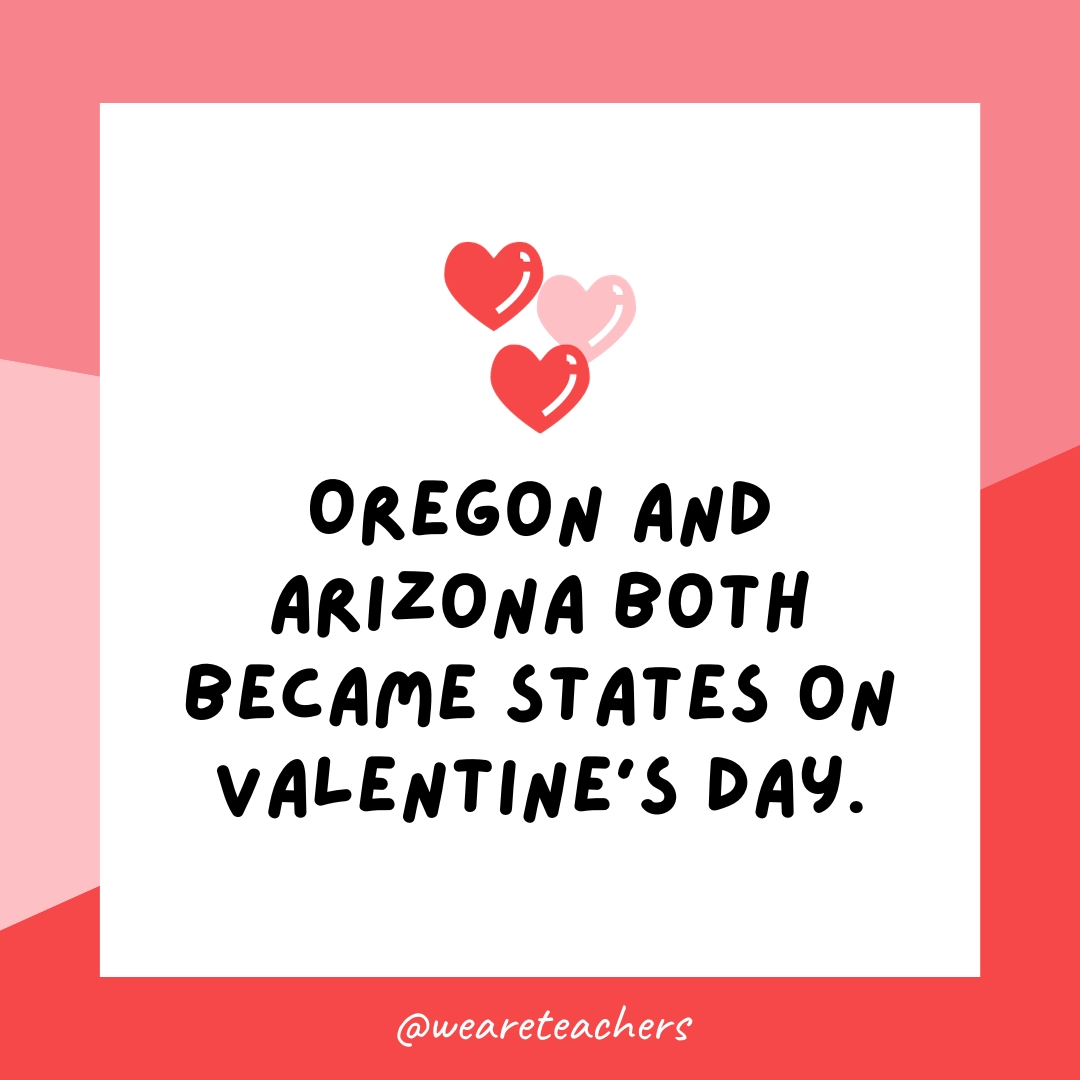
Oregon (in 1859) and Arizona (in 1912) became states on Valentine’s Day.
Alexander Graham Bell filed his patent for the telephone on Valentine’s Day.
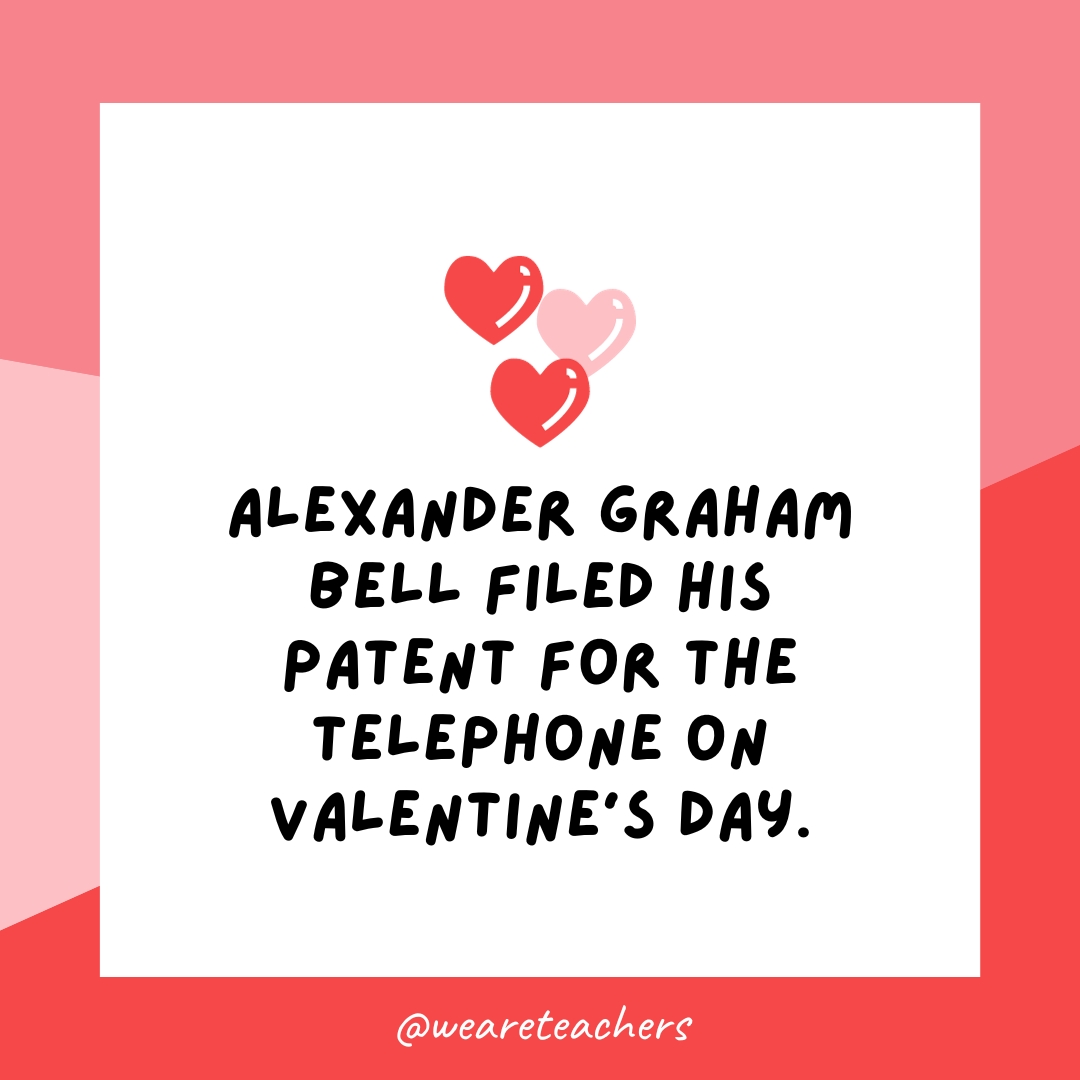
Alexander Graham Bell submitted documents to the patent office on February 14, 1876. The patent was granted on March 7, 1876.
63% of us will send a Valentine’s Day text.
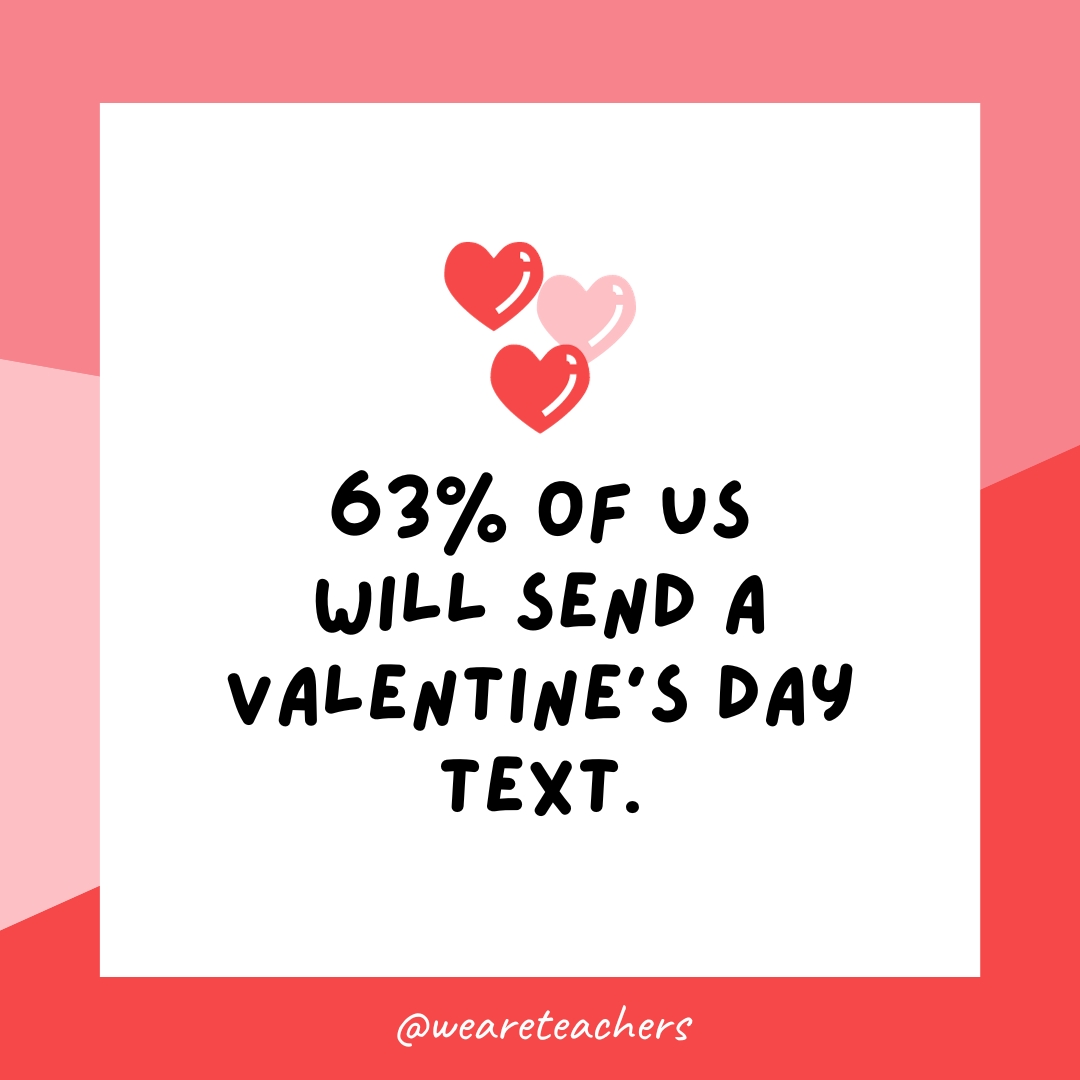
Texting is the new Valentine’s Day card. Most people said they will text loved ones on Valentine’s Day.
Valentine’s Day has its origins in a Roman holiday.
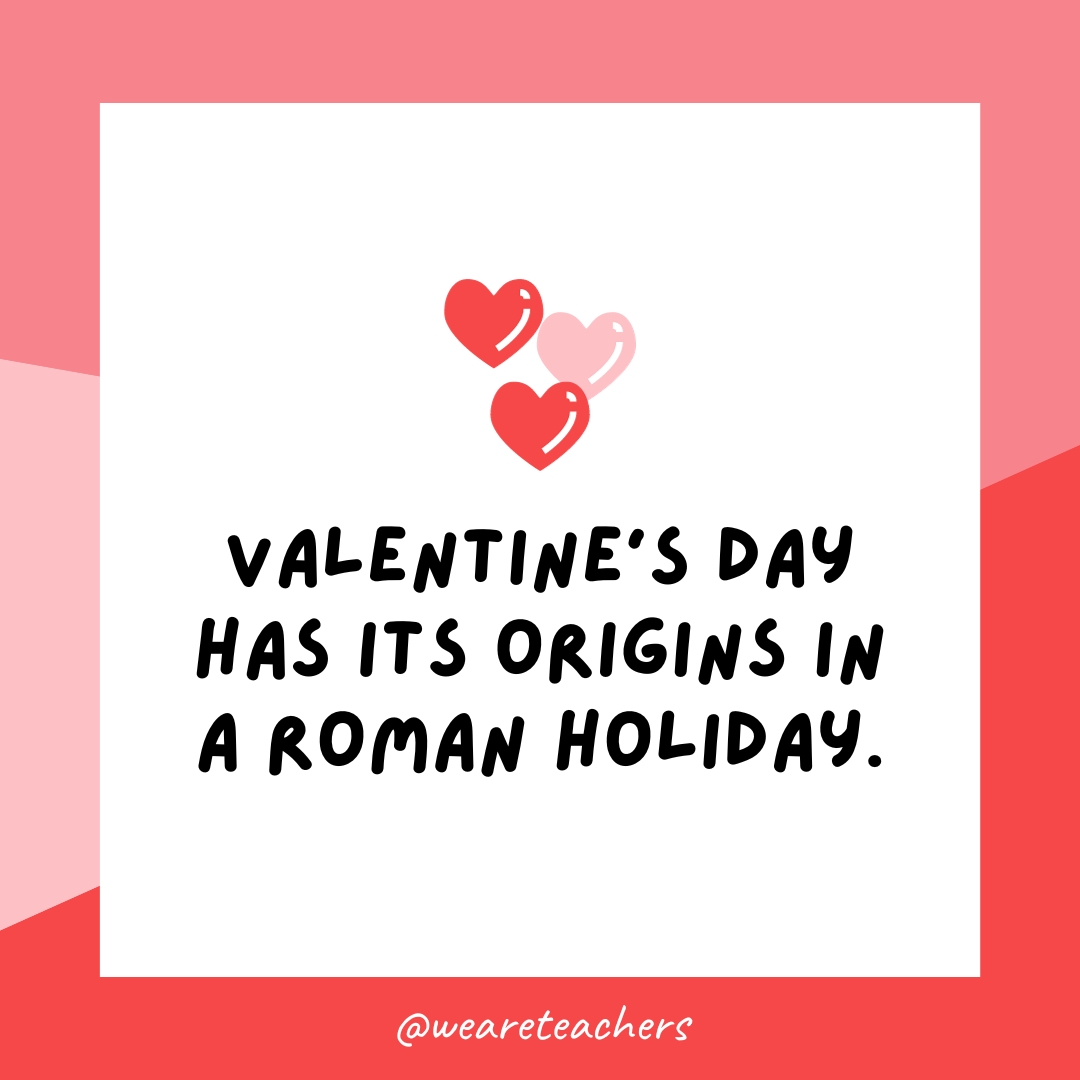
In the 6th century BC in February, Romans would celebrate the festival of Lupercalia by sacrificing animals and performing other rituals.
Cupid was a Greek god.
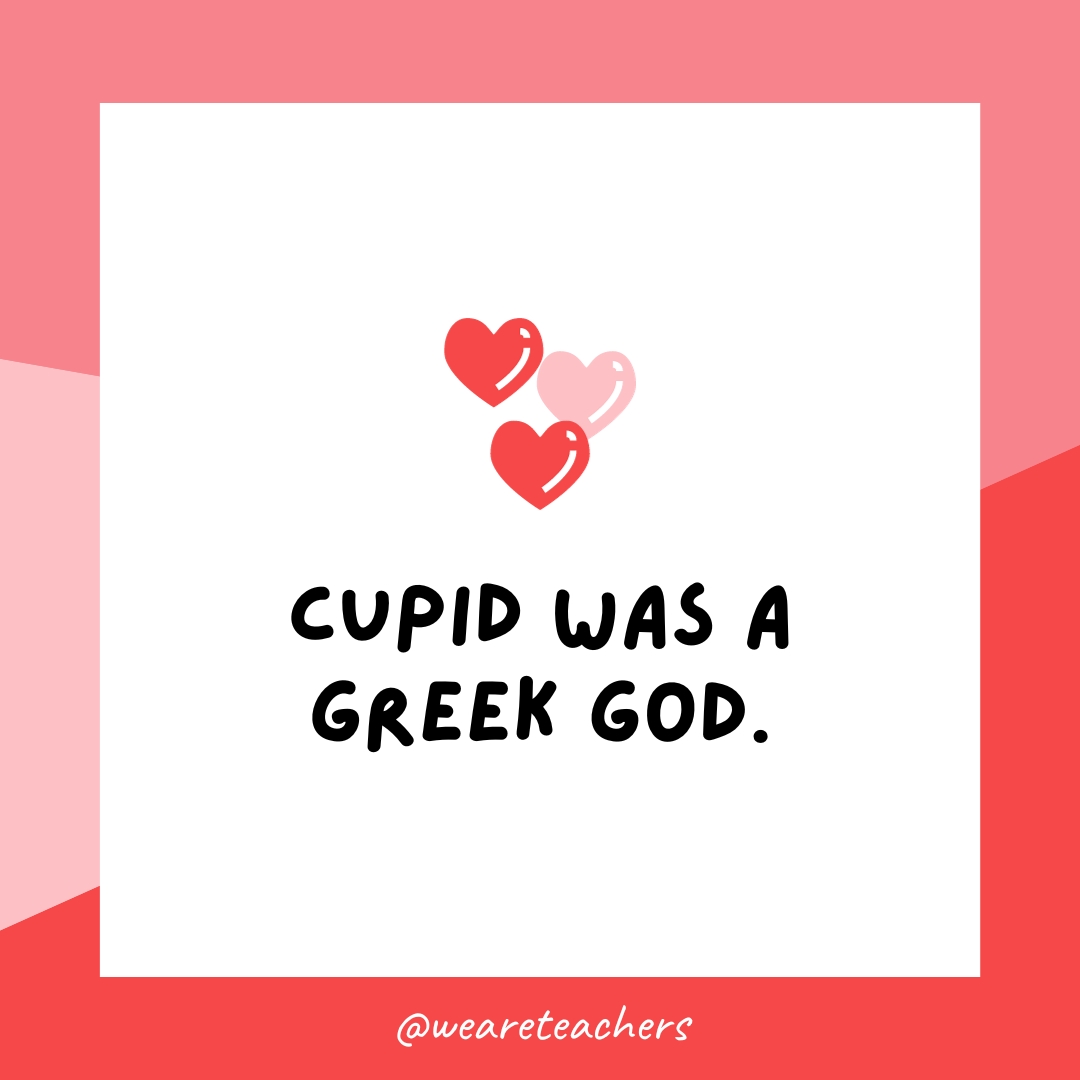
We know him as a chubby, arrow-shooting baby, but Cupid was actually a handsome Greek god in mythology whose magical arrows could make mortals fall in love or hate. He became the face of Valentine’s Day in the 19th century.
The red heart was one of the most-used emojis in 2024.
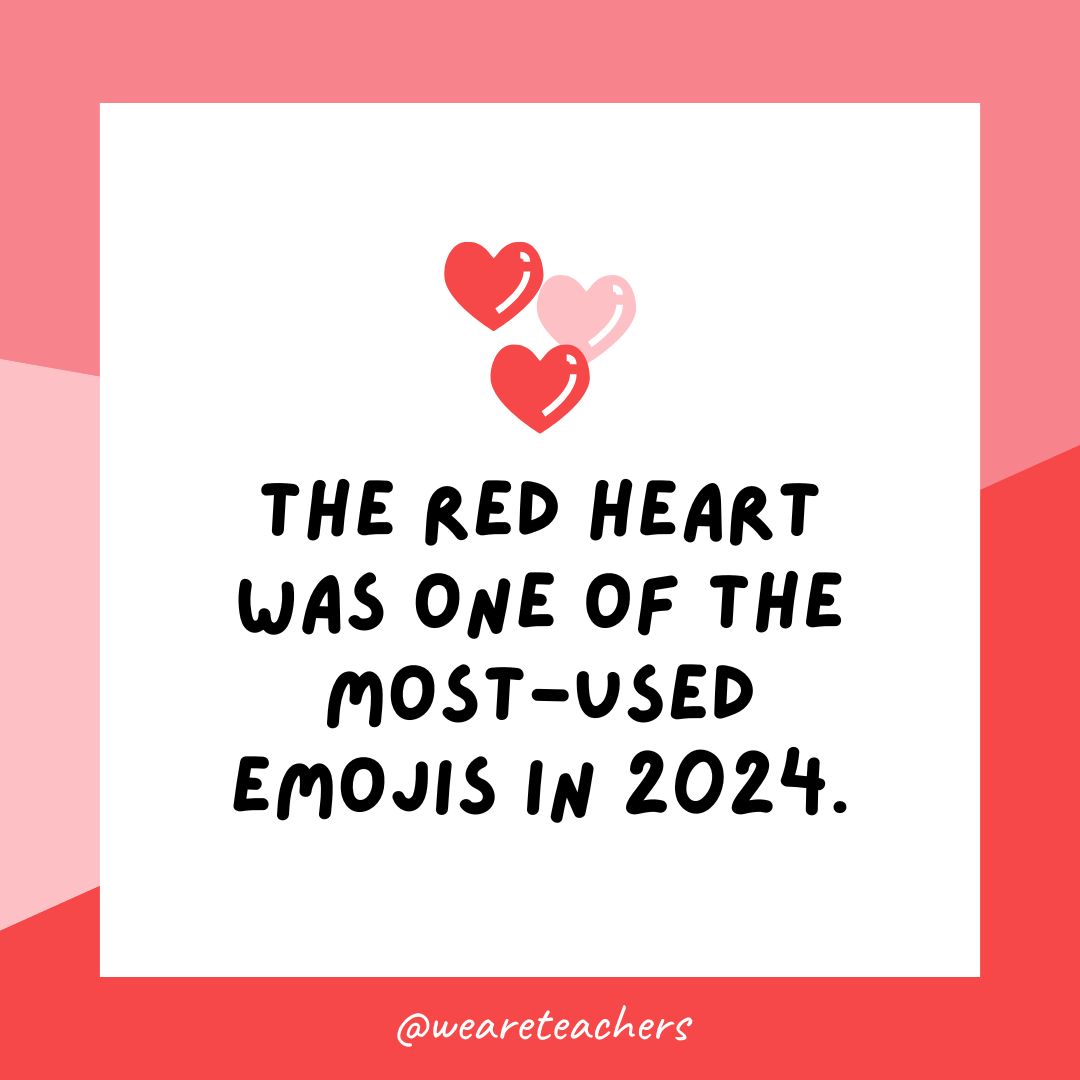
The red heart is a classic emoji, and in 2024, it was up there with “crying with laughter” and “heart eyes” in the top three emojis.
Valentines are much plainer than they used to be.

In the 19th century, Valentine’s Day cards were at their peak. People decorated valentines with everything from peacock feathers to lace to jewels!
Get your free Valentine’s Day facts slides!

If you want to share these Valentine’s Day Facts with your classroom, click the button below to receive a copy of our Google Slideshow including all of the facts found above!

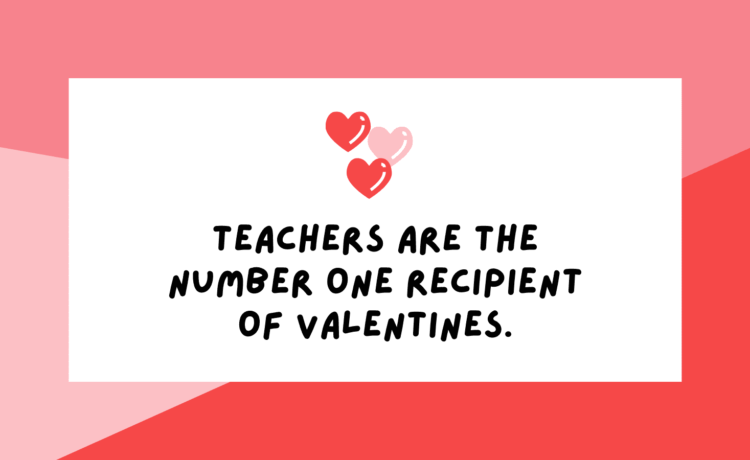






Recent Comments